Join Join John P John P aul II in pr aul II in praayyer
General: That old people may be considered an asset to the spiritual and human growth of society
Missionary: That in Africa authentic, brotherly cooperation may develop among all those who work for the growth and development of ecclesial Communities
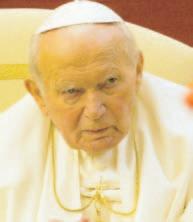


WA’s only Catholic weekly newspaper
Perth: 18 September 2003 Price: $1


All should be welcome: Bishops
Australia’s Catholic Bishops speak on racism
The Catholic Bishops of Australia have aimed their 2003 Social Justice Sunday Statement at combatting racism.
Entitled A Generous Heart in the Love of Christ: Challenging Racism in Australiathe statement was launched on Wednesday September 17.
It traces Australia’s story of welcome and exclusion, from the impact of white settlement to the development of a multicultural nation.
The statement precedes Social Justice Sunday which is due to be celebrated on September 28.
Launching the statement, Australia’s former Governor General Sir William Deane said it was significant to the Catholic Community and the nation as a whole.
He said, “One reason why that is so is its subject matter, namely, our attitude to racism and the importance of the inclusion, rather than the exclusion of those who are particularly vulnerable through racial, religious or cultural difference. That subject matter lies at the heart of our national worth and decency in these difficult times.”
Responding to the Statement’s rejection of racism, Sir William said, “In its frank and honest acknowledgement of past injustices in our land, the Statement seems to me to provide convincing moral support for the mutual respect and acceptance which lie at the heart of our
Australian multiculturalism. That moral support comes at a most appropriate time since, as the Statement points out, that multicultural respect and acceptance are currently being subjected to extraordinary pressures in our community.”
Bishop Christopher Saunders, Chairman of the Australian Catholic Social Justice Council, said “While the Bishops note the recurrence today of racial hostility and rejection in aspects of the nation’s life, we also recognise Australia’s proud history of welcome that, more than ever, needs to be harnessed for a more inclusive society.
“Poor progress towards national reconciliation with Indigenous Australians, our treatment of asylum seekers and the racial hatred experienced by Arab and Muslim Australians are particular challenges we must all address for the health of the entire community.
“Based on the teaching and example of Christ, the Statement suggests ways we can ensure people of every race and background are welcomed in our parishes, schools, local communities and in public life”, Bishop Saunders said.
“We have a long tradition in Australia of giving people a ‘fair go.’ In the post-war migration the term “the new Australians’ was coined.
“We have that tradition of being a welcoming community and we should look for opportunities to grow as a multicultural community,” he concluded.
Copies of the Statement and related resources can be found at: www.socialjustice.catholic.org.au.
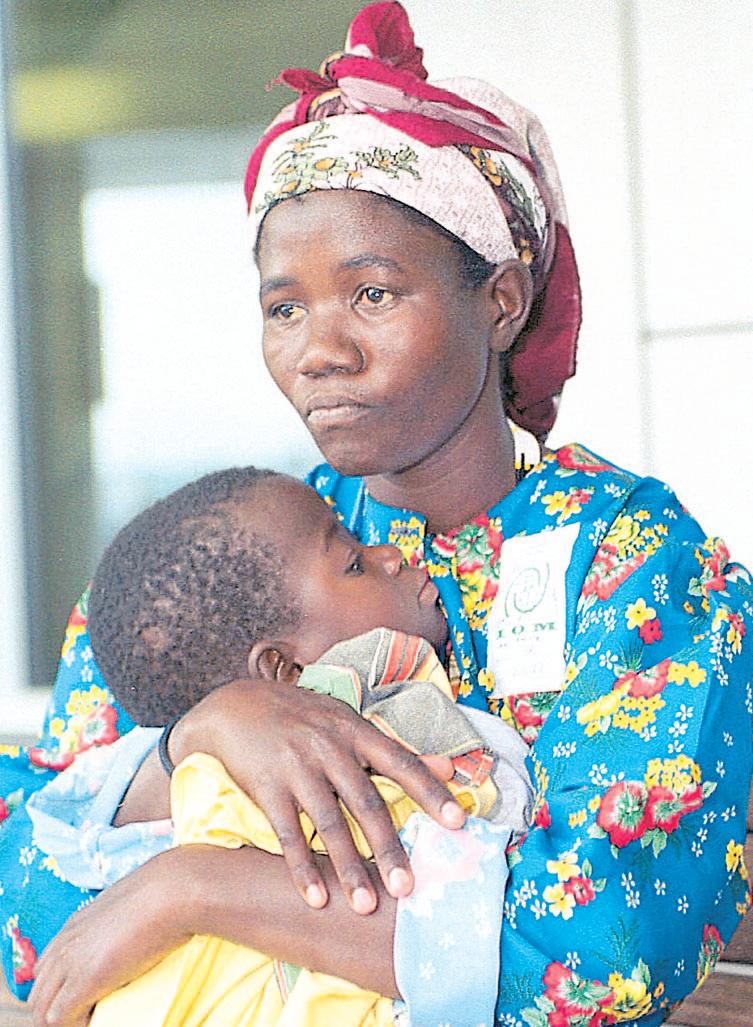

Don Willesee honoured by many Muslims: Christians’
He might also have been the father of a media dynasty, but Clarkson parish priest Father Philip Perreau said it was some time before he realised the elderly member of his congregation had been a prominent politician.
Father Philip said he had got to know the man as friendly, co-operative and generous.
Yet when he celebrated the Mass of Thanksgiving at a State Funeral for his parishioner at Our Lady of the Holy Rosary Church in Woodlands last Monday (Sept 15), the mourners included former Prime Minister Gough Whitlam, Foreign Minister Alexander
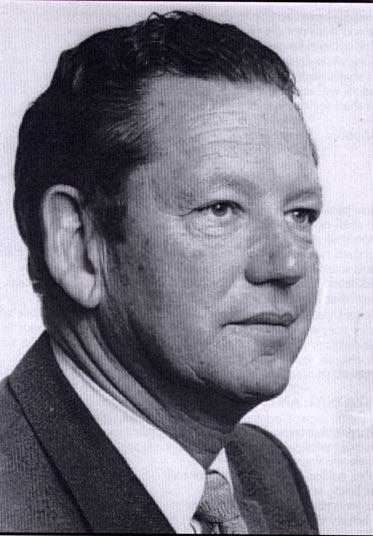
Downer and many other current and retired politicians. And His Grace the
Archbishop presided.
Donald Robert Willesee, who died earlier this month aged 87, was elected to the Senate in 1949. He retired in 1975 after serving as Special Minister of State and then Foreign Minister in the Whitlam Labor Government.
The prominent journalist Michael Willesee, one of Mr Willesee and his wife Gwen’s six children, told more than 200 mourners at the Mass that his father had inherited both prudence and a great love of the Catholic faith from his mother, Ethel.
Michael Willesee said that the Labor Party split in the 1950s – which gave rise to the Democratic Labor Party –
and the anti-communist hysteria of that era, had been a difficult time for his father. Unlike many other Catholics in the Labor Party, his father declined to join the DLP.
“The wounds that had been opened at the time were like third degree burns – they healed slowly,” Michael Willesee said. His father lost his Catholic faith, a fact which had effectively torn a hole in his heart.
Don had later wrestled with returning to the Church. When he eventually took the step, he was far more at ease.
Michael said his mother Continued - Page 4
greatest allies?
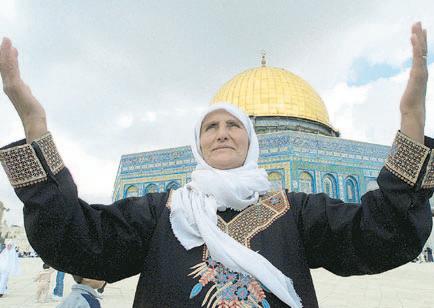
Brian Gardner’s HONDA 432 Scarborough Beach Road Osborne Park 6017 Phone: 944 99 000 DL0891 For the best deal on a new Honda, accessories, parts, finance or from our range of quality used vehicles. new@hondanorth.com.au www.hondanorth.com.au HONDA NORTH HONDA NORTH
SEPTEMBER
er
B i s h o p s ’ f u l l s t a t e m e n t : s e e p
a g e s 7- 10
Donald Robert Willesee
Gray page 4
Photo:CNS/Reuters
Paul
DISTRIBUTION
The Record, established in 1874, is distributed to Catholic Churches, presbyteries, religious houses and subscribers throughout the Archdiocese of Per th, Geraldton, Bunbury, Broome and overseas.
THE TEAM
Managing Editor
Peter Rosengren
Production/ Advertising
Carole McMillen
Office Manager Kylie Waddell
JOURNALISTS
Bronwen Clune
Debbie Warrier
CONTRIBUTORS
Hugh Ryan, Paul Gray, Fr Tim Deeter, Tony Evans, George Russo, Peter Dwan, Norma Woodcock, Guy Crouchback
SUBSCRIPTIONS
Subscribe to The Record (46 issues) and Discovery (6 issues) $55 per year.Send subscription with cheque or money order.
ADVERTISING
Editorial:Tuesday
first mail
Advertising:
Booking:Monday
midday
Copy:Tuesday
midday
CONTACT US
587 Newcastle Street, West Perth, WA 6005 POBox 75, Leederville, WA 6902
Tel.9227 7080
Fax 9227 7087 or find us on the web www.therecord.com.au
Editor cathrec@iinet.net.au
Classifieds/ Advertising advertising@ therecord.com.au
Accounts administration@ therecord.com.au
Reviving traditions
Visiting world Benedictine leader says Benedictine spiritual reform
Rflourishing
evitalisation of the spiritual life of their communities has been the major feature of Benedictine monasteries around the world in the 40 years since Vatican II, according to the Benedictine Abbot Primate, Fr Notker (Werner) Wolf.
Fr Wolf visited the Benedictine Abbey in New Norcia for three days last week on his way to Sydney for a meeting of the worldwide International Communion of Benedictine Women.
He said a strong revival of the traditional Benedictine method of scriptural meditation, Lectio Divina, had led to a reform of monastic life which was now more securely based on Gospel values rather than the special traditions of different monasteries.
This had been accompanied by a Vatican II reform in which the Liturgy and Divine Office were now sung in the vernacular instead of Latin.
It had taken many years for the changes to be fully implemented, with language translations, new musical settings and monasteries becoming accustomed to worshipping in the vernacular.
But now there were only islands of Latin remaining, and many monks and even some monasteries would not be able to chant the Liturgy and prayers in Latin.
The change had led to the communities’ return to their spiritual roots and to a simpler life in which aesthetics were no longer so important.
While it may have been expected to increase the separation between the independent Benedictine monasteries it had in fact brought them closer together at the spiritual level and therefore in their contact with one another. It was also beginning to bring Benedictines and Cistercians closer together, particularly in Australia and Latin America.
While vocations to the monasteries had followed the Church’s pattern downwards in the 70s and 80s, particularly among women, they were now beginning to rise again, particularly in developing countries.
In Western Europe there were some vocations, but probably not enough to sustain all the existing abbeys. In Italy alone there were 100 abbeys of Benedictine women, established in times when the population was not so mobile and when there were far more children to receive and answer the call.
Benedictines had made a big contribution in the US and continued to run their universities and colleges. There seemed to be an upturn in vocations there.
In Latin America, after a time of stagnation, vocations were coming up, and there was good growth in Africa, the Philippines and South Korea, particularly among women, while India was also growing.
There was a strengthening, too, of the
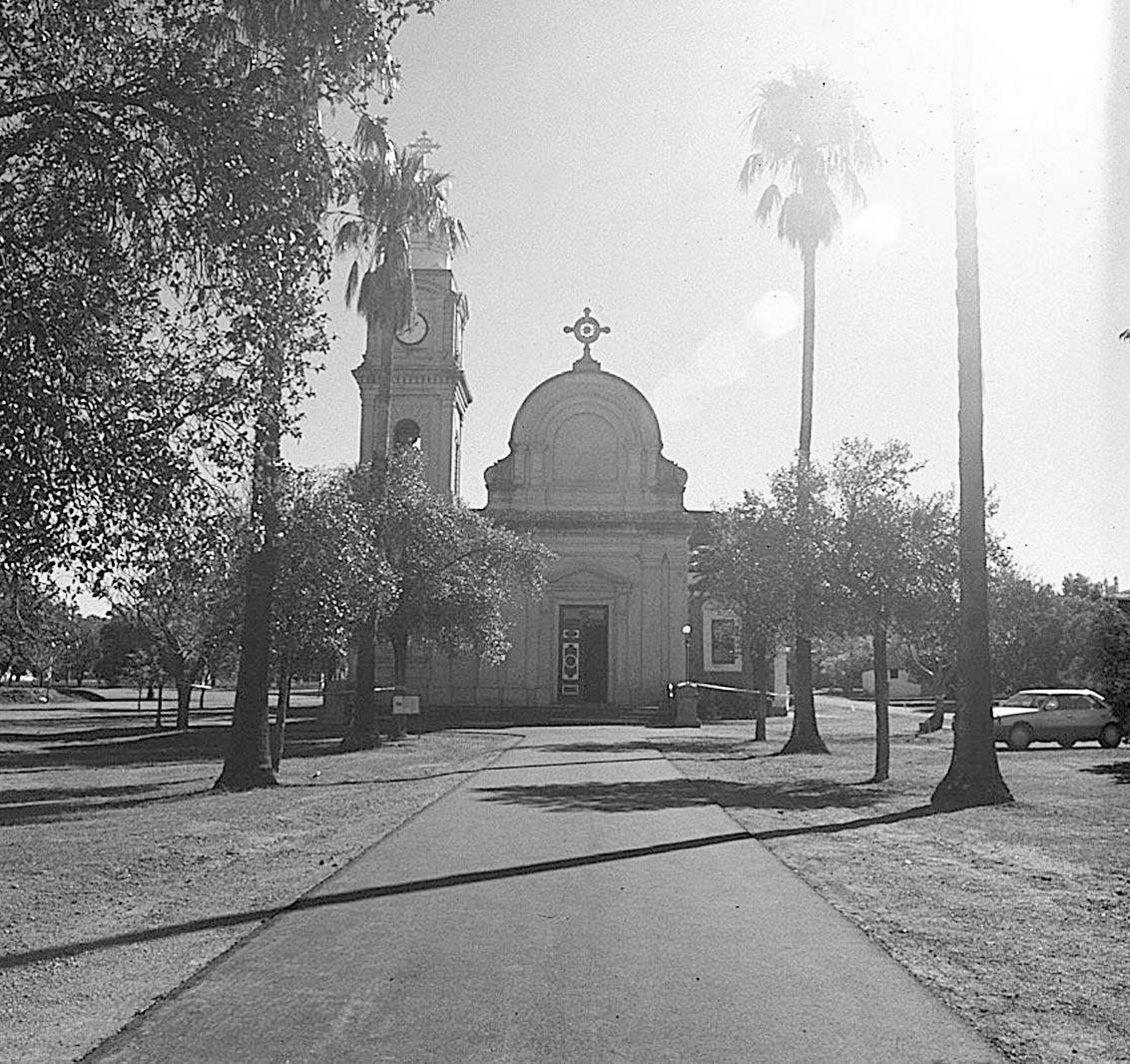
Benedictine tradition of hospitality, which, along with prayer and work, was the third characteristic of the Order. "In Europe, this is very attractive to the young and to people coming from a background of no faith," the Abbot Primate said.
"Monasteries are becoming centres of inter-religious dialogue because we welcome everyone.
"Our commitment to hospitality is: ‘Open the door and come and live with us."
The Abbot Primate said the Benedictines have nearly 300 independent houses in which the Abbot is the leader. Pope Leo XIII had basically forced the monasteries into 21 congregations, with each congregation electing an Abbot President. The congregations met to elect an Abbot Primate for an 8-year term.
"I am the most powerless man in the Benedictine Order; I have no jurisdiction over the monasteries," he said.
"I have no personnel or resources except what I can persuade the monasteries or others to give me."
Fr Abbot Primate and Fr Placid Spearitt, the Abbot of New Norcia, agreed that the Benedictines wanted to keep it that way.
"We are not an Order but a disorder," said Fr Placid, quoting the in-house view of the Benedictine Confederation.
The independence of the monasteries kept them out of the centre of ecclesiastical structures and enabled them to concentrate on developing their weakness as their strength.
ethical value of manual was not found outside European Christianity. St Benedict said: "You are only a real monk if you live by the work of your own hands."
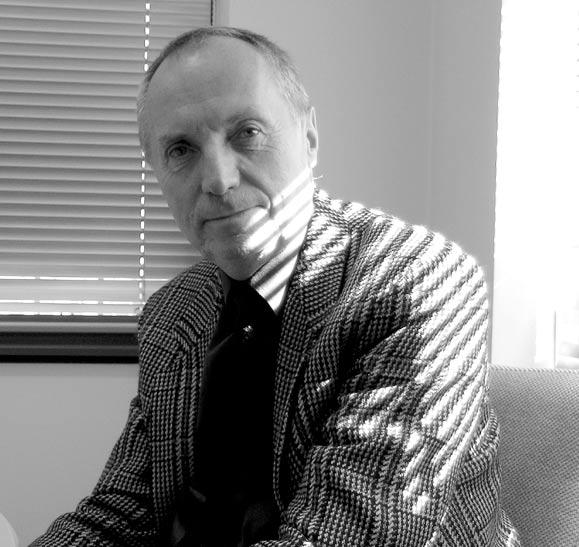
There are about 8500 Benedictine monks around the world and a further 16,500 sisters who also live in independent communities. Benedictine Nuns live in enclosed communities dedicated to prayer and Benedictine Sisters work in schools, hospitals and other charitable ventures.
Contact
Mark Kalnenas (B. optom)
Plaza, Cottesloe 9384 6720
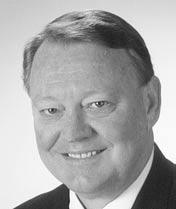
The Benedictine view of evangelisation was that it involved the whole person and the whole culture.
Abbot Wolf’s home congregation of St Ottilien in Germany expressed this by running a school for 700 boys and girls, a technical school, a 300ha farm, a printing and publishing operation for theological and spiritual literature, and even its own railway station. It was a centre of spiritual, cultural and economic life in its district.
St Ottilien’s was a missionary congregation and the four Abbeys it had sponsored in Tanzania were all developing into this kind of centre for their regions, according to their local needs and opportunities.
"Inculturation for us is living with the people and becoming imbued with their mentality and their way of taking up Christian values,” Abbot Wolf said.
One significant cultural difference was that the
Although independent, they have recently been brought together on the spiritual level in the International Communion of Benedictine Women in 19 regions, with an annual conference each year.
As Abbot Primate, Fr Wolf lives in the Abbey of St Anselmo in Rome, a community of 120 people, with 80 of them Benedictines from 40 countries around the world. It is not so much a headquarters as a point of encounter for the Benedictine world.
It is directly associated with the Benedictine International University in Rome which has 350 students in faculties of philosophy, theology and liturgy. It is the only liturgy faculty in the world and provides professors to universities and seminaries around the world.
"It is our gift to the world," the Abbot Primate said.
More stories Page 3
The Record 2 18 September 2003 No. 3375
The Church at New Norcia
Your Travel Business is our Business * Pilgrimage Specialists * Frequent Flyer Points Managed
Michael Deering A division of Interworld Travel Pty Ltd Lic No.9TA796 ® Travel Services Level 3,184 St.George’s Terrace,Perth WA 6000 Tel 9322 2914 Fax 9322 2915 Email admin@flightworld.com.au Michael Deering MANNING & ASSOCIATES OPTOMETRISTS
Benedictine Abbot Primate, Fr Notker (Werner) Wolf.
Contact
Lens Consultants
Grove
Pictures:Peter Rosengren
The new view at New Norcia
Fr Abbot Primate’s description of the reform and revitalisation of Benedictine monastic life around the world is almost a pen picture of changes in the life of the Benedictine Abbey at New Norcia over the last few decades.
Whenever Abbot Placid Spearitt speaks about the life of the Holy Trinity Abbey he emphasises that its primary work is the work of God, a life of prayer and personal relationship with Jesus.
The Abbey now has a guest house and is open to people wishing to make retreats and to spend time in prayer with the monks, a form of hospitality not available at New Norcia a few decades ago.
The Abbey is now a centre of contact with the outside world, hosting Christian and secular
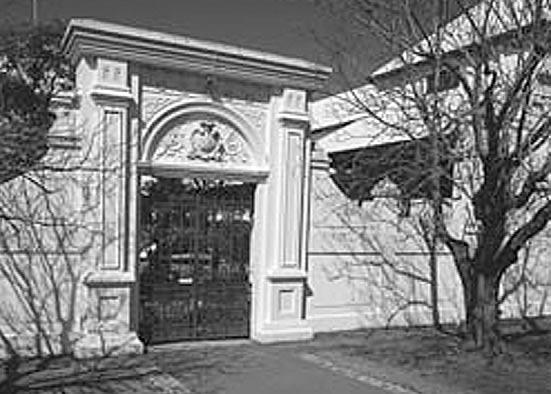
groups for a variety of activities, including music, art and Aboriginal studies, which are a highlight of the New Norcia program.
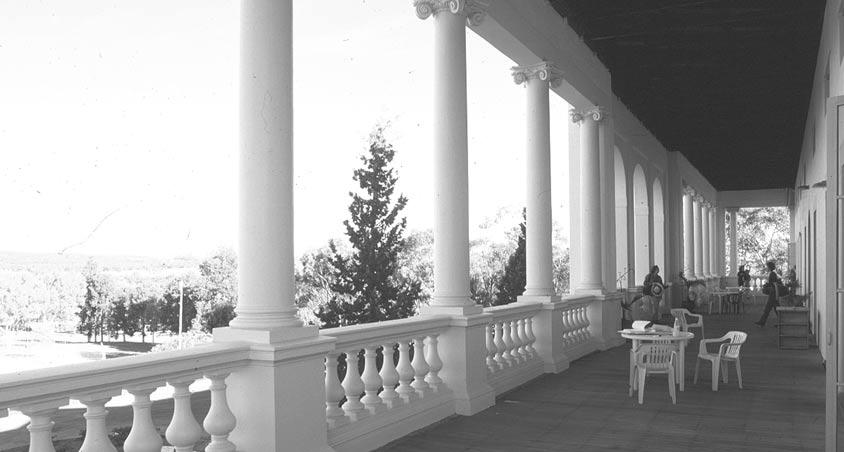
Benedict’s sisters at work in China, North Korea
The Benedictine Abbot Primate has strong and developing links in China and North Korea.
He explained that the Benedictines had had a diocese and an abbey in North-East China before the Communist regime took over.
The abbey became an army camp, but the Benedictines of St Ottilien community felt responsible for the people who had been baptised by their monks.
In co-operation with the local government they have set up a 500-bed hospital with up to 10 Benedictine Sisters from the Tutzing Community working there.
The Sisters originally conducted an out-patient clinic for three years and the government then
decided to build the in-patient hospital. The local government pays the Sisters a monthly salary and an annual train ticket home to visit their families each year.
When local officials told him that they had complete religious freedom in China, he realised they firmly believed it because they had no other point of comparison.
Fr Wolf, who has been President of St Ottlilien congregation for more than 20 years, then took a group of officials to Germany to show them what religious freedom really is.
It made a huge difference to their attitude when they saw the extent of the charitable work undertaken by the Church and the level of separation but cooperation between Church and State.
This led to permission to build a major seminary, a church and a diocesan community. In North Korea, two of the three Catholic dioceses before the Communist takeover had been Benedictine. In 1994, he managed to visit North Korea to see what could be done.
It was clear that charitable work would be the key and he obtained permission to build a hospital. The construction was complete "but I am still collecting money for the equipment," he said.
"I want to help China and North Korea to change, but we cannot expect them to change into Western communities.
"China will develop a different way because of their different culture and philosophy even before communism."
Benedictine nuns get together
Sydney hosts world gathering
Benedictine nuns from around the world have journeyed from their abbeys this week to converge on Sydney in an historic meeting aimed at fostering the development of women’s monasticism.
It is the first time that a meeting of the Communio Internationalis Benedictinarum (International


Alliance of Benedictine Women), established in November 2001, has been held in Australia. Among those present at the meeting are the Abbot Primate of all Benedictine communities world-wide, Fr Notker Wolf, from St Anselmo, Rome. His role is to foster union between the many diverse communities of the Benedictine Order He represents some 25,000 Benedictines world-wide
– 16,500 women and 8,500 men.
The gathering is being held at the Mount St Benedict Centre, Pennant Hills from September 12 to 20.
The centre is conducted by the Sisters of the Good Samaritan of the Order of St Benedict, who were founded in Sydney in 1857 by Archbishop John Bede Polding, a Benedictine Monk of Downside Abbey, England and later the first Catholic
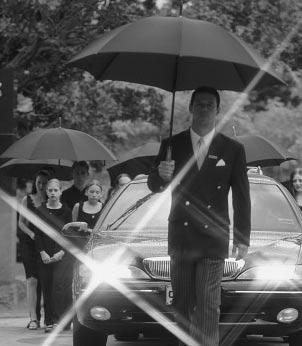
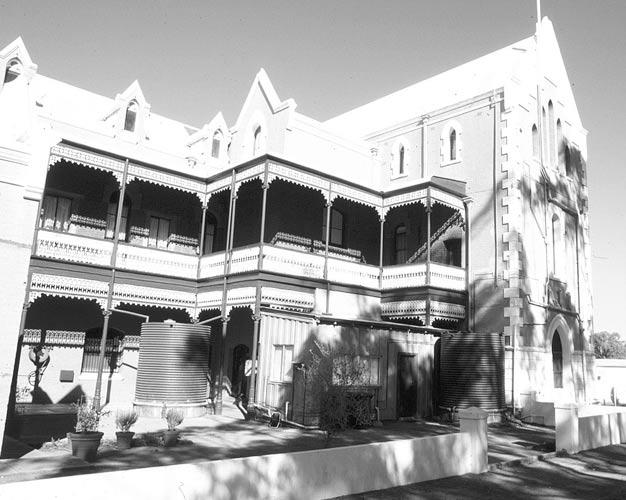
Archbishop of Australia. Congregational Leader of the Good Samaritans, Sr Sonia Wagner, said the meeting would include delegates from all corners of the globe.
"The purpose of the Communio is to promote mutual support and exchange of ideas and experienceamong Benedictine women on an international level and to foster the development of women’s monasticism," Sr Sonia said.
"We are delighted to be able to host in Australia such a rich and wonderful gathering of
Benedictine women." A highlight of the agenda was an afternoon gathering, open to the public, examining Issues in Monastic Spirituality, presented by Michael Casey OCSO and Margaret Malone SGS on Sunday, September 14 in the assembly hall of the Mount St Benedict College, Pennant Hills. The program will also included a visit to the Abbey of the Benedictine Nuns at Jamberoo in the southern highlands of NSW and a visit to St Mary’s Cathedral with Prayer at the tomb of Archbishop Polding.
The Record 18 September 2003 3
320 Murray Street, Perth WA 6000 PH:9321 4224 International Hair Styling Present this advertisement to receive a 10% discount off any service provided.
The view out across the countryside of New Norcia from the hotel. Photo:Peter Rosengren
The monastery gates
Chapels located at: Cannington: 9461 7133 Cottesloe: 9384 2226 Dianella: 9229 7700 Fremantle: 9239 7744 Mandurah: 9535 4261 Medina: 9236 7733 Midland: 9229 7255 Perth: 9231 5199 Westminster 9464 7266 Simply a matter of trust since 1888 Service above all else. For information on pre-paid funerals, memorial selections or female funeral directors, please call any of our local offices.
The former St Gertrude’s College,New Norcia. Photo:Peter Rosengren
Keeping hope alive

Mercy Sisters Mary Keely and Maureen McCarthy are just the kind of exemplars of which the Australian Catholic Bishops’ Social Justice Sunday Statement speaks. United in their passion to offer a loving welcome to those seeking refuge in Australia, they have been a source of hope and consolation to many.
Sr Mary has been serving amongst the residents of the Port Hedland Detention Centre since June 2001. When she first arrived at the Centre, there were some 550 people in detention, 50 of whom were women. Inspired by a desire to help these asylum seekers in any way possible, Sr Mary set about organizing English lessons and various activity programs, such as knitting and sewing classes. Sr Mary explains that in those early days there was an atmosphere of excitement and hope in Port Hedland, as people were granted visas and the opportunity of a new life. Presently, however, visas are rarer and so it is easy for hope to falter. ‘Seeing the arbitrariness of the system can be heartbreaking,’ Sr Mary says. However, she knows that a ministry of ‘keeping hope alive for the future, whatever the circumstances may be,’ is vital to her presence in the Centre.
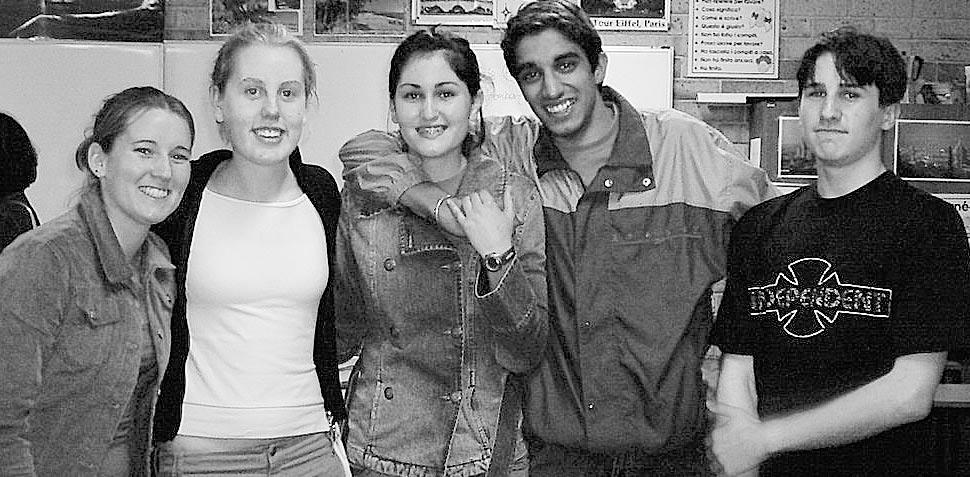
Sr Mary also sees herself as a good contact for people in the wider community who wish to express their support for those in detention. A group of year 11 students from Newman and Trinity Colleges who are preparing for a Mission immersion experience in Port Hedland, appreciated the insight that Sr Mary was able to offer during a recent visit to Perth.
Visit Sr Maureen’s Carlisle home on a Thursday and you will find it abuzz with happy activity.
This day draws together Perth people from a variety of backgrounds and faith affiliations, and newly resettled
refugee women and children in an experience of mutual sharing and friendship. For those in the precarious situation of being on Temporary Protection Visas, Sr Maureen’s committed and loving presence is a beacon of encouragement and comfort. As we seek models of compassionate openness to the Christ who is in our midst as stranger, we need look no further than these women of hope. For more information on Mission immersion programes or Faith and Justice initiatives from the Catholic Mission Office in Perth, please contact either Michelle or Francis on 9325 5264.
Don Willesee honoured
Continued from Page 1
was a great believer in the family rosary and its motto “the family that prays together stays together”.
He believed his father’s return to the faith, and the fact their far flung family had come together again during his last weeks, was evidence of the motto’s validity.
Former Labor leader Kim Beazley, also told the mourners that the ‘50s had been a difficult time for Catholics in the Labor Party.
He described Don Willesee as “a man of faith and family – a great but humble Australian leader.”
He had grown up in the multi-racial town of Carnarvon, was “without a racist bone in his body”, and had been strongly opposed to apartheid at a time when the White Australia policy applied.
Michael Willesee said his father had been asked shortly before he died what was his overwhelming feeling. His answer was: “Gratitude.”
“That is how he died,” Michael said. “Love, God, family, peace and gratitude.”
Don Willesee is survived by his wife Gwen, their children Colleen, Michael, Terry, Geraldine, Don and Peter, and 20 grandchildren.
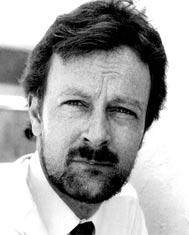
There's a nasty problem of intolerance against Muslims emerging in Australia today. Sadly, there are even some signs of it within Catholic communities.
This is unfortunate. Apart from the obvious wrongness, morally speaking, of holding discriminatory attitudes against anybody simply based on their membership of a particular racial or religious group, it's also bad strategy.
In particular, it's stupid strategy for people who are dedicated to spreading the word of the Gospel and evangelising the world with the beauty and wisdom of the Christian message.
Hrmphh, I can hear some people say. Catholicism promotes tolerance, and if there are bigots around, they're on the other side of the religious fence from us. Of course, Catholicism does promote tolerance. How can any religion truly based on the teachings of Jesus Christ fail to do this?
The vast majority of Catholics are not only reasonable and decent people, but they are people who are working to make the world a better place.
So if there is a problem of anti-Moslem racism in Catholic communities today, it's a problem that, in a way, goes against type for Catholics.
It's a problem that is associated only with a very small number of people, in percentage terms.
And remember, the Catholic community is a very large group of people - the number one Christian denomination in the land, comprising several million Australians.
So it's hardly surprising if there are a few people with strange ideas lurking around the fringes - especially at a time when fears
OpinionReflection &
&
Catholic opinions from around Australia
I Say, I Say....
of foreigners in general and Islamist terrorists in particular are on the increase in the national community at large.
That doesn't excuse intolerance, though. In particular, what I'm encountering through conversations and correspondence with people both inside and outside the Catholic community is, at times, a narrow-minded attitude to the Islamic faith.
There's a willingness - a greater willingness than is justified by the facts - to believe that Moslems hold certain values that are incompatible with our own.
As a matter of opinion, I believe that the opposite is true.
There are cranks in every human community, of course, and Moslems are no different in that regard.
But the idea that Osama bin Laden's version of 'jihad' is somehow close to the heart of what ordinary, God-fearing Moslems believe is utterly ridiculous.
And this troubled world demands that we take that fact on board, pronto. If Catholics won't lead the way here, no-one will.
The attitude was summed up by a conversation with an audience I was addressing some weeks ago.
The discussion was about JudeoChristian values, and how close to them are the values of some Moslem societies.
Someone threw in the comment that some Moslems believe in an eye for an eye. Now I don't want to act like the Thought Police here - but seriously, why single out some bunch of Moslems if you want to condemn people on the vengeance principle? Isn't vengeance a human problem, rather than a problem that is specific to a particular religion?
Indeed, doesn't every culture on earth, including our own, suffer grievously from
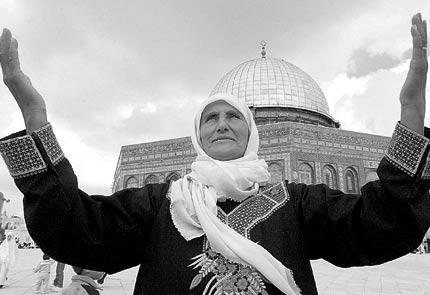
the cycle of violence - revenge leading to revenge, leading to revenge, and so on and so on until some strong and peaceful person has the courage and foresight to put an end to the cycle?
There was some irony in the moment when this point about vengeance was raised.
The place where we were meeting stood virtually in the shadows of a Church where several widely-reported "gangland" funerals had only recently taken place.
Melbourne is said to be experiencing a "gangland war" at the moment.
No fewer than 19 underworld figures have been murdered in separate grisly incidents in the past three years.
Several of these killings, reporters say, were the result of "payback" for earlier attacks.
So here we have it - Australian criminals, some of them sons of our own church, tragically losing their lives as the result of decisions by some to follow that hateful principle of an eye for eye.
Hearing this, many of us don't even blink an eye. Just another example of crims doing what they do, isn't it?
with Paul Gray
Yet we're prepared to believe - or at least, some are prepared to believe - that our community is somehow under threat today from people from other places coming into our country, bringing intolerance with them.
I've had it suggested to me also in recent times that the real problem with the Moslem community in Australia is that moderate Moslem leaders are not doing enough to "root out" the extremists from their midst.
Really? And what, precisely, should those moderate Moslem leaders be doing -- putting the extremists under house arrest?
Dobbing them into police when they uncover evidence of terrorist activity?
But there haven't been any terrorist attacks on Australian soil.
And who's to say that most Moslem Australians wouldn't go to the police if they did uncover evidence of dangerous plotting?
I believe the vast majority would.
My own personal dialogue with moderate Moslem leaders convinces me that not only do Australian Moslems not represent a threat to us - they are actually one of our major assets.
They believe in God. They promote family values, prayer, self-discipline and a positive attitude to life.
So much of our society today is lost in spiritual confusion and meaninglessness. Terrorism is definitely a problem and a fear -- but a far bigger threat to Australian lives comes from our culture of drug abuse, nihilism and despair.
Who stands clearly against this culture of death in Australia today?
Apart from the Catholic church, I can think of few stronger rocks of fortitude than the Moslem faith.
The Record 4 18 September 2003
Members of the team preparing for a mission immersion experience in Port heldand.
A Palestinian woman prays in front of the Dome of the Rock mosque in Jerusalem
IVF pioneer turns whistleblower
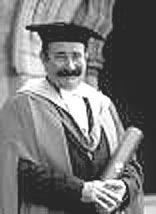
A pioneer of IVF has launched a s tinging attack on fe r tility treatment.
Lord Robert Winston, who developed preimplantation genetic diagnosis, says that IVF patients and babies are being experimented on and that doctors are introducing new techniques without sufficient research.
“Most of the patients using it do not have an inkling that there are any risks in IVF," he told Britain's largest science meeting this week.
"I'm not arguing that IVF is dangerous," said Lord Winston. "What I am arguing is that there isn't any form of properly informed consent." He also said that information collected by the UK's IVF regulator, the Human Fertilisation and Embryology Authority, was inadequate and that Authority itself was "remote and arrogant".
Lord Winston gave examples
of several common IVF procedures which concern him.
Embryo freezing may alter the behaviour of a gene that suppresses tumours.
Ovary-stimulating drugs could trigger chromosomal abnormalities.
And data from mouse experiments appears to show that the technique of delaying the transfer of embryos to the mother may interfere with genetic expression.
"There is now a lot of data out there to show that some procedures, under some circumstances might be quite dangerous," he said. "The reaction of the medical community was completely to pooh-pooh the data." He called for more IVF research on apes and monkeys, even if animal rights groups protested
● Thirty per cent of people who are investigated for assisting others to commit suicide later commit suicide themselves, according to the UK's Voluntary Euthanasia Society.
Their deaths are caused by the trauma of what they have done and the strain of society's reaction, says the VES. - ABI
Bishop Mayne dies
The Catholic Church and the men and women of the Australian Defence Force were saddened earlier this week by the death of the retired Military Bishop, Bishop Geoffrey Mayne.
Bishop Mayne, who was ordained bishop in February 1985, died peacefully in hospital on Sunday 14 September. He was 75. He was ordained priest for the Sydney Archdiocese in July 1956. In 1965 he was commissioned into the Royal Australian Navy and received commodore status in 1977 as principal chaplain, navy.
In 1979 he was made a Monsignor and he became a Member of the Order of Australia in 1983. He retired that year and became parish priest at Mosman.
Two years later he was named as Catholic Military Vicar. In 1986 the Catholic Military Vicariate was elevated by Pope John Paul II to a diocese, to be called the Military Ordinariate of Australia. Australian Catholic Bishops’ President, Archbishop Francis Carroll, said Bishop Mayne was passionate, both in his service of God and defence personnel.
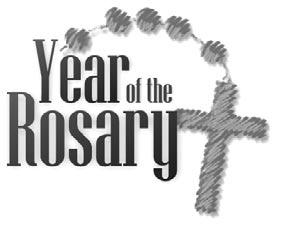
READING
The Modern Apparitions of Our Lady.La Salette (France) to Kibheo (Rwanda).A confrontation with secularisation, RRP $19.95 which includes P&P within Australia - from Tamanaraik Press, 7/67 Collins Street, Thornbury, Vic 3071 or POBox 12792, a Beckett Street, Post Office, Melbourne, Vic 8006.
There are many styles in spirituality as in others areas of peoples’ lives and in today’s modern scene devotion to Mary, Mother of God, has waned among some Catholics - but not all.
Mary’s well-authenticated appearances and her consistent messages strike a response - with some five
million pilgrims visiting Lourdes annually and three million, Medjugorje - but these places are not mentioned in mainstream Catholic circles as they once were.
The apparitions of Mary which Church authorities approve as ‘worthy of credence’ after exhaustive study and testing, can provide strong faith support when confident belief is being sorely tested.
Moreover, the message of the apparitions is strikingly similar from La Salette to Kibheo. mary calls consistently for ‘back to basics’ service of God from members of the faith community; conversion of heart, devotion to Jesus in the Eucharist and use of the other sacraments; penance and reparation for personal and human sinfulness.
The apparitions of Mary covered in this attractively illustrated book are those at La Salette and Lourdes (France), Baneux and Beauraing (Belgium). Knock (Ireland). Fatima, (Portugal), Medjugorje (BosniaHercegovina) and Kibheo (Rwanda).
The text is illustrated with maps, diagrams and photos. There is also a good deal of useful pilgrimage information on each of the apparition sites
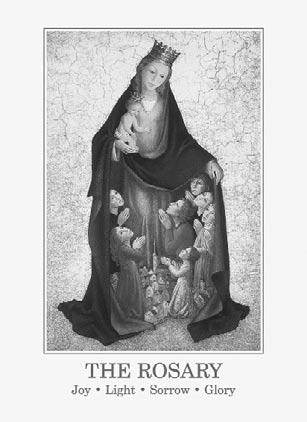
“Duc in altum!” – “Put out into the deep”.
Pope John Paul II has chosen these words of Jesus as the watchword of the Church as she advances with a firm and confident step into the third millennium. Now he has shed new light on the Holy Rosary for us too, and has entrusted it to us as a priceless means of help as we venture forth into the “vast ocean” of the new millennium. By adding the five Luminous Mysteries the Holy Father has enriched our prayer life. The Rosary booklet contains all 20 mysteries as well as excerpts from the Holy Father’s apostolic letter Rosarium Virginis Mariae, scripture readings, meditations and prayers.
This booklet is intended not only for those who have already enjoyed a Christian upbringing, but also for all those who were deprived of this and are therefore unfamiliar with the great treasure that is the Rosary. This beautifully illustrated little booklet is now available fora donation of $3.00 (includes postage). Also available are the Papal Rosary beads. To obtain the Rosary booklet and the Vatican Rosary beads we ask fora donation of $15.00 (includes postage). All proceeds will go towards the work of Aid to the Church in Need for the persecuted and threatened Church worldwide.
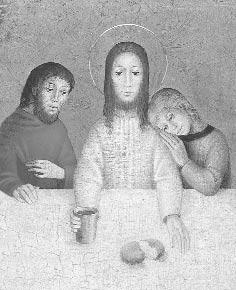
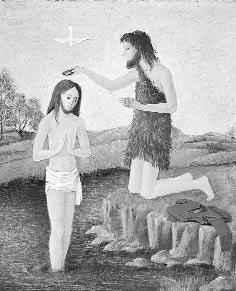

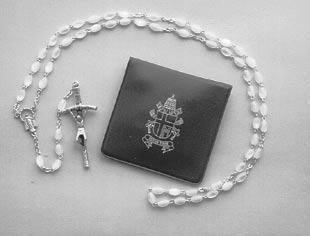
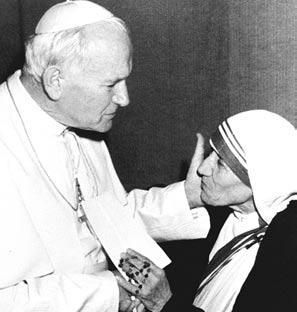

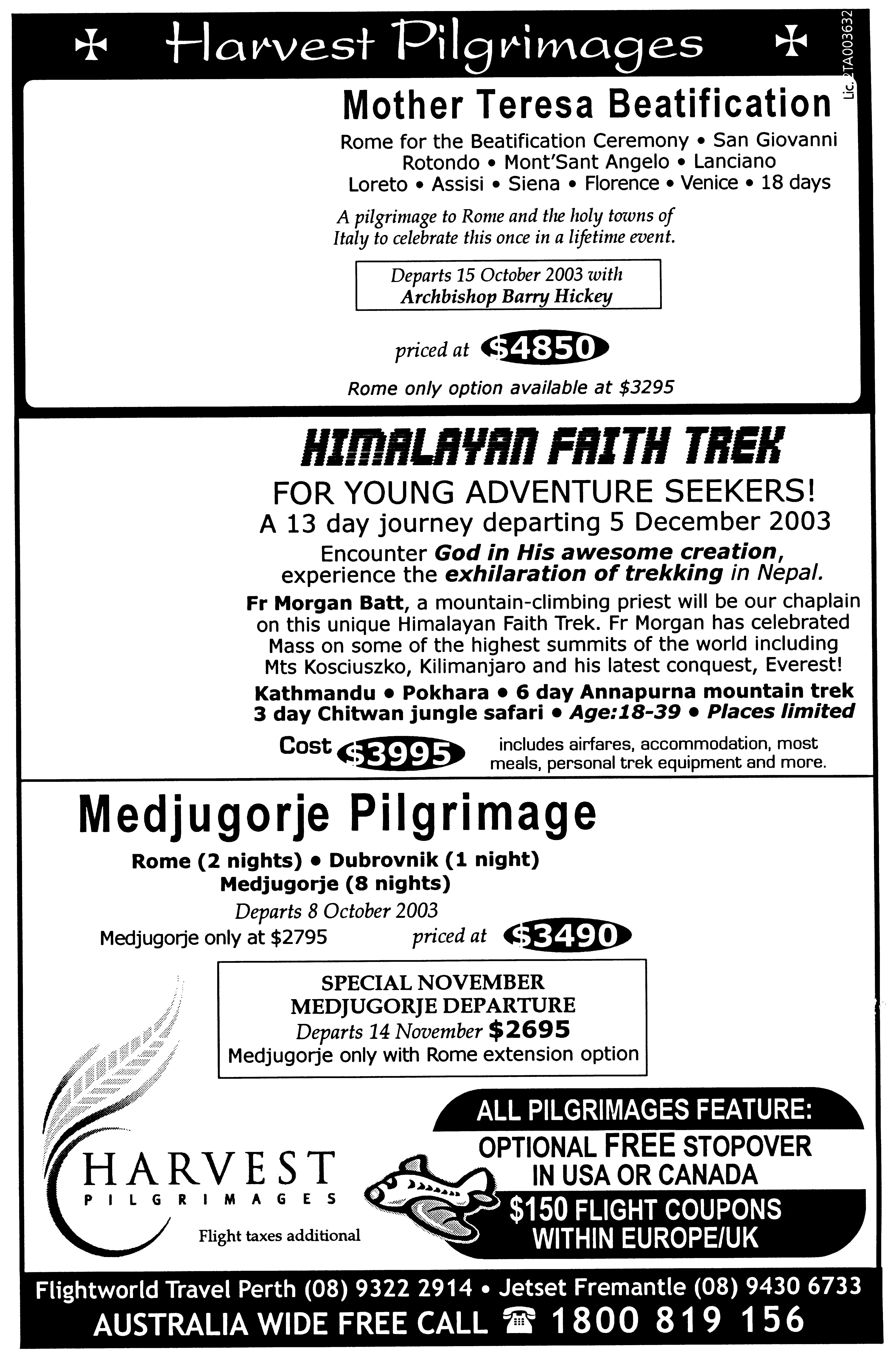
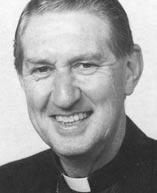
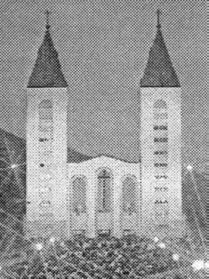
The Record 18 September 2003 5
The Rosary
Glory Aid
Featuring the
new Mysteries of Light Order Form: “The Rosary – Joy, Light, Sorrow, Glory Send to: Aid to the Church in Need, PO Box 6245 Blacktown DC NSW2148 Phone/Fax No: (02) 9679-1929 E-mail: info@aidtochurch.org Web: www.aidtochurch.org Please send me: Number Amount The Rosary booklet ($3)* . . . . . OR The Rosary booklet and the Vatican Rosary beads ($15)* . . . . . Charity donation (optional) . . . . . Total enclosed . . . . . *Postage included. Limit of 5 copies per order Signature . . . . . . . . . . . . . . . . . . . . . . .Exp Date . . ./ . . . BLOCK LETTERS PLEASE Mr/Mrs/Miss/Ms/Rev . . . . . . . . . . . . . . . . . . . . . . . . . . . . . . Address . . . . . . . . . . . . . . . . . . . . . . . . . . . . . . . . . . . . . . . . . . . . . . . . . . . . . . . . . . . . . . . . . . . . . .Postcode BankcardVisaMastercard Payment method:Cheque/money order enclosed OR Please debit my credit card AID TO THE CHURCH IN NEED A Catholic charity dependent on the Holy See, providing pastoral relief to needy and oppressed Churches PG Beautifully illustrated throughout. Just $3 a copy or$15 forthe Rosary booklet and Papal Rosary. A lovely gift idea! If you would like to know more about life as a Norbertine priest or brother, please contact: Fr Peter J Stiglich, O.Praem. St Joseph’s Priory PO Box 354 Cannington WA 6987 Telephone: (08) 9458 2729 Email: norbert@iinet.net.au
Lord Winston Recommend The Record
– Joy, Light, Sorrow,
to the Church in Need launches new Rosary booklet
5
Forgiveness comes easy to God, Church
The State funeral of former Foreign Affairs Minister Don Willesee in the Holy Rosary Church, Doubleview, on Monday was another very public reminder that forgiveness comes easy to God and His Church.
In a moving tribute to his father, Mike Willesee described how he had left the Church after the political turmoil and confusion of the Labor Party split of 1955 and returned to his spiritual home only a few years ago. Mike Willesee himself has also experienced a very public return to the same faith after having been distracted from it by the things of the world for about 40 years.
In this respect the Willesees are neither better nor worse than a myriad of other Catholics who have wandered away, or chosen to go, or even stormed out of the Catholic Church only to find the gentle love of God whispering in their hearts and nudging them back, reluctantly often, towards their own happiness. Don and Mike Willesee are just slightly more public examples at the present time than most people.
As Mike Willesee said of his own return: “I finally got the message. There is a God at work in the world and he knows my name, and he knows your name.”
The re-conversion of so many Catholics – some in their youth, some in their prime, and some on their deathbed – is one of the great glories of the Church and one of its great joys. The response of
Will children look back?
How many of your readers have had the honour of praying with their Archbishop as they walked through the streets of Perth? I wonder how many children have experienced this, as did the nine children who accompanied His Grace earlier this month. In years to come, those children will tell their children with joy that not only did they know of Archbishop Hickey, but they prayed the rosary with him outside an abortion clinic.
We all know the prayers of children are powerful. To these courageous young apostles, the words of the late Cardinal, John O’Connor apply in a special way: “God knows the lives you have saved, even if you don’t. Thank God for you.”
Philip Haydon Woodlands
Stunned
I was stunned and sickened when I read for the first time the full details
those who receive the blessing is always one of gratitude and joy. It seems almost as though they have to live for a time without the beauty of the Church in order to appreciate it fully. As the late Maurice Brockwell, who dearly loved his faith, once said, “I nearly lost it. I’m so glad I got it back.”
It is impossible to know what percentage of lost or wandering Catholics are reclaimed by God and Church before they leave this life, but listening to family stories and listening to priests who have almost endless experiences of the infinite mercy of God, it would not be hard to believe that the Good Shepherd finds each one us.
The Church never doubts God’s mercy and always responds to the call of the sinner. This generosity of response is a scandal to many. Critics who charge that the Church is too harsh, too inflexible in her insistence on the truth of God’s law in our lives, also charge that the Church is too soft in her forgiveness. This difficulty of the merely human heart to accept the goodness of God and His Church is not new.
of the Snowtown "bodies in the barrels" case. I noted that each of the three main murderers - Bunting, Wagner, and Vlassakis - had been homosexually violated as boys by older men.
These crimes were apparently not reported to police. Instead, the victims harboured a deep-seated anger and desire for revenge against all perceived paedophiles and homosexuals. Bunting in particular saw himself as judge, jury and executioner.
The whole horror story twists and turns around a web of "non-traditional" families. They were breeding grounds for child sexual abuse, which in turn bred the most terrible forms of retribution.
When God sent Jonah to preach repentance to Nineveh, he was angry with God and resented the task. His ‘reason’?
‘They’ll repent and you’ll just forgive them!’ There is a lot of that attitude still around in human nature. It amounts to telling God how to do his job, which is hilarious when we stop to think about it, but people do this sort of thing regularly without ever being aware of the real significance of what they say. The problem is that it does not get us anywhere and it does not help anyone else – especially our spouse or our children!
That is why Jesus told us to forgive, always to forgive, and that if we do not forgive our Father will not forgive us. This does not mean that God will go into a state of unforgiveness. God is love and God does not change.
It means that when we don’t forgive others we put ourselves in a state where we cannot hear or receive God’s offer of forgiveness for us. Likewise, as we judge others, so we live in the negative state of our judgement.
Aristotle is not God, but he got it right when he said that if we want to under-
This should come as no surprise. Every year the Australian Institute for Health and Welfare statistics show that single parent and blended families have the highest relative rates of child abuse. Non-traditional families are also associated with high rates of drug abuse, suicide and violent crime.
If governments really care for our children, they will promote traditional marriage.
Roslyn Phillips
Festival of Light Australia, Adelaide Potential?
Fr Justin Belitz, developer of the “Success: Full Living” programme, is certainly achieving success in promoting his latest visit to Perth, including the story and picture in the Record (September 11).
Curiously in listing Fr Belitz’s degrees his Doctoral Certificate in Psychorientology from Silva Mind Control International and his Honourary Doctorate of Philosophy of Metaphysics from the American Institute of Psychical Research are omitted. (This Institute is into everything from reincarnation to trance channelling of spirits).
Silva Mind Control is one of the
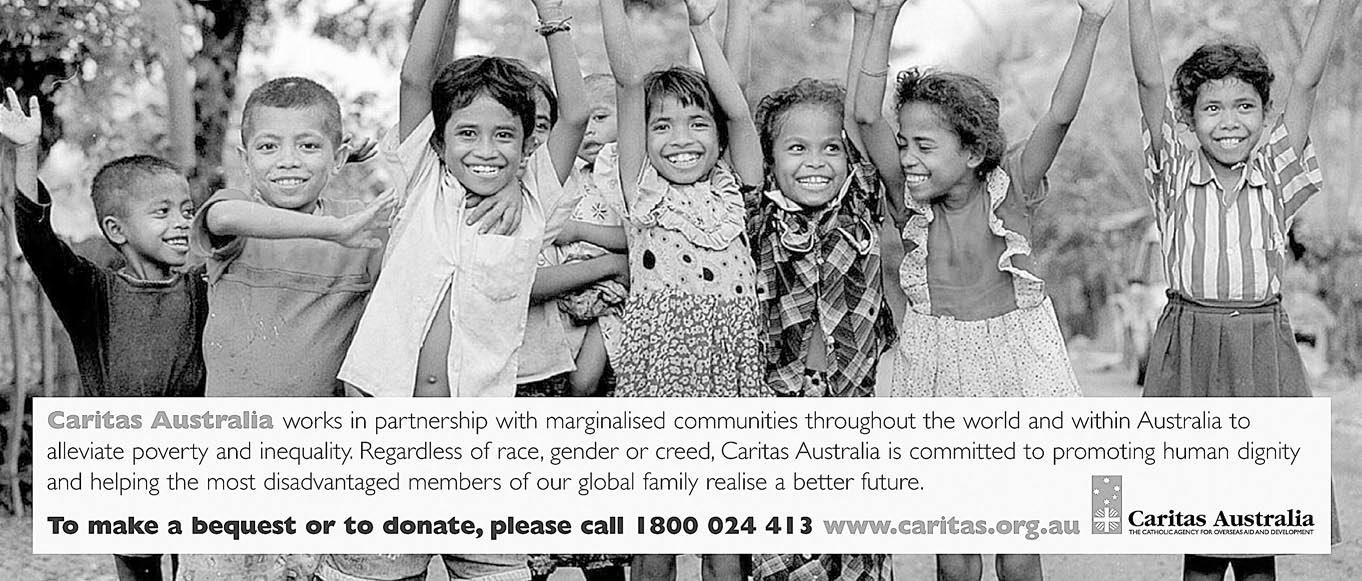
stand something we must look at its best or better features. If we look at its worst features, our understanding will be impeded.
Jesus went even further. He said that if the light of our (mind’s) eye is goodness our body will be lighted up, but if the light of our eye is darkness our whole body (ourselves, our relationships, our life experience) will be darkness.
Every time the Church forgives someone who has abandoned or forgotten her – and especially those who have attacked, scorned, derided and damaged her – she demonstrates that Jesus’ instruction is the way to live. She shows that she, as the body of Christ, sees only the goodness in each one of us, the image and likeness of God that was breathed into us by God himself. Everything else is forgiven because no amount of darkness can compare with the image and likeness of God.
In doing this so faithfully, the Church continually shows us that this is the way for us to live. It is only by seeking the goodness in one another that we will strengthen our marriages, our relationships with our children, our classrooms, our community, our nation and our world. Seeking the fault brings darkness; seeking the good brings light.
Rest in peace, Don Willesee. You have provided another opportunity for us to remember the forgiveness and love of God.
numerous human potential techniques so popular in New Age circles. As well as claiming to deliver techniques for achieving success in every area of personal life it is claimed that Silva graduates can diagnose and heal physical health problems over the Internet.
Jose Silva, the founder of this method, claimed to be pioneering “the second phase of human evolution on the planet”. Silva Mind Control also makes use of “inner counsellors.” It may therefore open practitioners up to occult influences.
Fr Belitz offers regular courses in Silva Mind Control.
Richard
Ferndale
Egan
In fairness to Fr Justin Belitz, the publicity for the Armadale parish retreat was organised by the parish. His program “Success: Full Living” has nothing to do with the Silva Method. It is about integrating faith and life in the full human person.
Whether he has received an award from the American Institute of Psychical Research is as irrelevant to his priesthood and the retreat he will conduct as Archbishop Hickey and the Chairman of the Board of The Record accepting awards from the Mormons: they cannot therefore be accused of accepting all of the Mormon beliefs.
In fairness to Fr Justin’s association with the Silva Method of Mind Control (your own mind, that is) it is my understanding that neither the developer of this educational program nor the program itself has anything to do with the New Age. The program is presented publicly and many Catholic priests, nuns, brothers and lay people have benefited from it, so perhaps some New Age advocates have, too. Guilt by association is always unfair.
Fr Justin has never been involved in ‘opening people up to occult influences’ or in teaching them anything that would create that problem and it would be unfair to imply that he has done so or would do so. People concerned about Fr Justin would do well to follow the basic principle that if you want to understand someone or something look for what is good in it. People interested in hearing Fr Justin can attend the Armadale retreat. - Ed.
A way we can assist our brothers and sisters
The Record 6 18 September 2003
is the Catholic
international relief and development, working in impoverished communities
Africa, Asia, Latin America, the Pacific and Indigenous communities within Australia. Continued - Page 11
Caritas Australia
agency for
throughout
POBox 75, Leederville, WA 6902 Tel:(08) 9227 7080, Fax: (08) 9227 7087 cathrec@iinet.net.au
Around t he tabl e dnuorA t eh lbat e LETTERS TO THE EDITOR
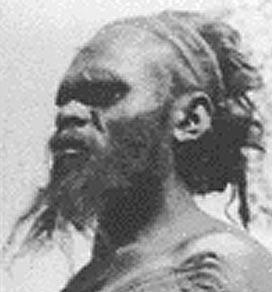

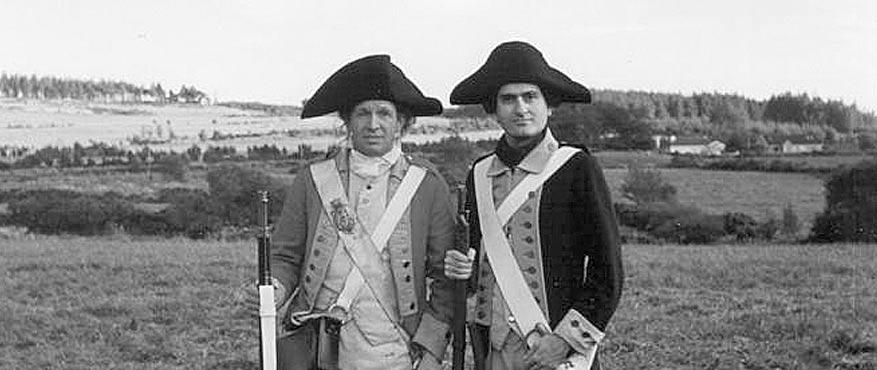

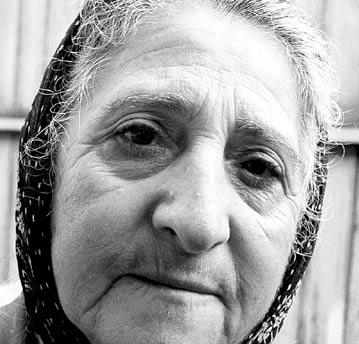
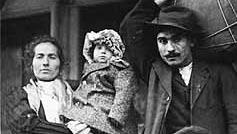
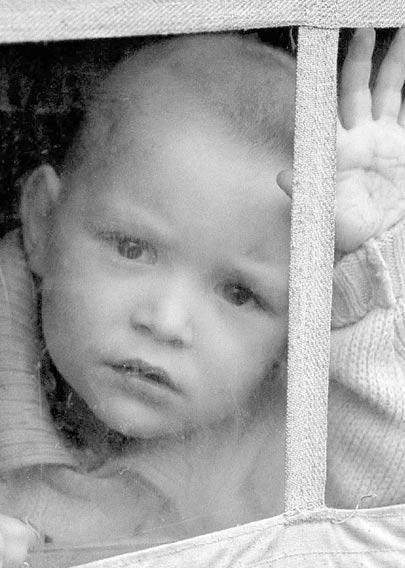
The Australian Catholic Bishops’ 2003 SOCIAL JUSTICE SUNDAY STATEMENT produced with the assistance of the Australian Catholic Social Justice Council
A Generous Heart
in the love of Christ: challenging racism in Australia today
One of the loveliest sights is that of a child running with a smile towards mother or father, and being welcomed with open arms.And one of the saddest sights is that of a little child running happily towards an adult, only to be pushed away with a frown and harsh words.We all know how encouraging we find it, even as adults, to be welcomed, and how devastating it is to be shut out and excluded.
To be rejected is bad enough if we have done something wrong.But it is even more bitter if we are excluded simply because of our religion, our birthplace, our colour, our race, or the way we speak.We are upset when people decide we are worthless even before they know
us.Equally, to be welcomed by people who do not know us encourages us. If experiences of welcome and rejection are significant for us as individuals, the same is true of our national life.Australian life has been a story of relationships.First, Indigenous Australians related to one another within the clan and with other clans.Later they had to relate to the powerful British immigrants, who also related to would-be settlers from other parts of the world.These patterns of relationship have constantly changed:sometimes excluding, sometimes welcoming.The more welcoming a family, town, city or nation has been to strangers, the healthier is its spiritual state. In Australia, as in other nations, there have been groups people have always found it difficult to welcome and easy to exclude.
The relationships of
white immigrants to the first inhabitants of the land have been difficult, beginning in violence and banishment, and continuing in uneasy and often patronising co-existence. For much of Australia’s history, too, people of races other than Caucasian have not been welcome, while many Chinese and South Sea Islanders were expelled.All this happened in the name of the White Australia policy.
Today, when fear of terrorism abounds, asylum seekers are widely feared and loathed, and Muslim immigrants often meet hostility in schools, workplaces and the wider community.That Jewish communities have also been targets of racial hatred at this time reminds us that a strain of anti-Semitism periodically reasserts itself in our society. Even in times when society is inhospitable, however, we hear inspiring sto-
ries of people who go out of their way to welcome strangers and make them feel at home.We are proud that many of these stor ies belong to the Christian churches, reflecting, in the parable of the Good Samaritan, the hospitality of a God who sent His Son to die for all human beings of every race and religion.Of course, we Catholics have also often shared with other Australians a blindness and lack of sympathy towards strangers.But this does not reflect the Gospel.Nor does it display the proud Australian tradition of “a fair go”.
In this Social Justice Sunday Statement, then, we shall reflect on our Australian story, exploring our reasons for welcoming or excluding those different from us.We shall then ask why our faith in Jesus Christ commits us to be hospitable to strangers, and suggest ways we can welcome those different from us.
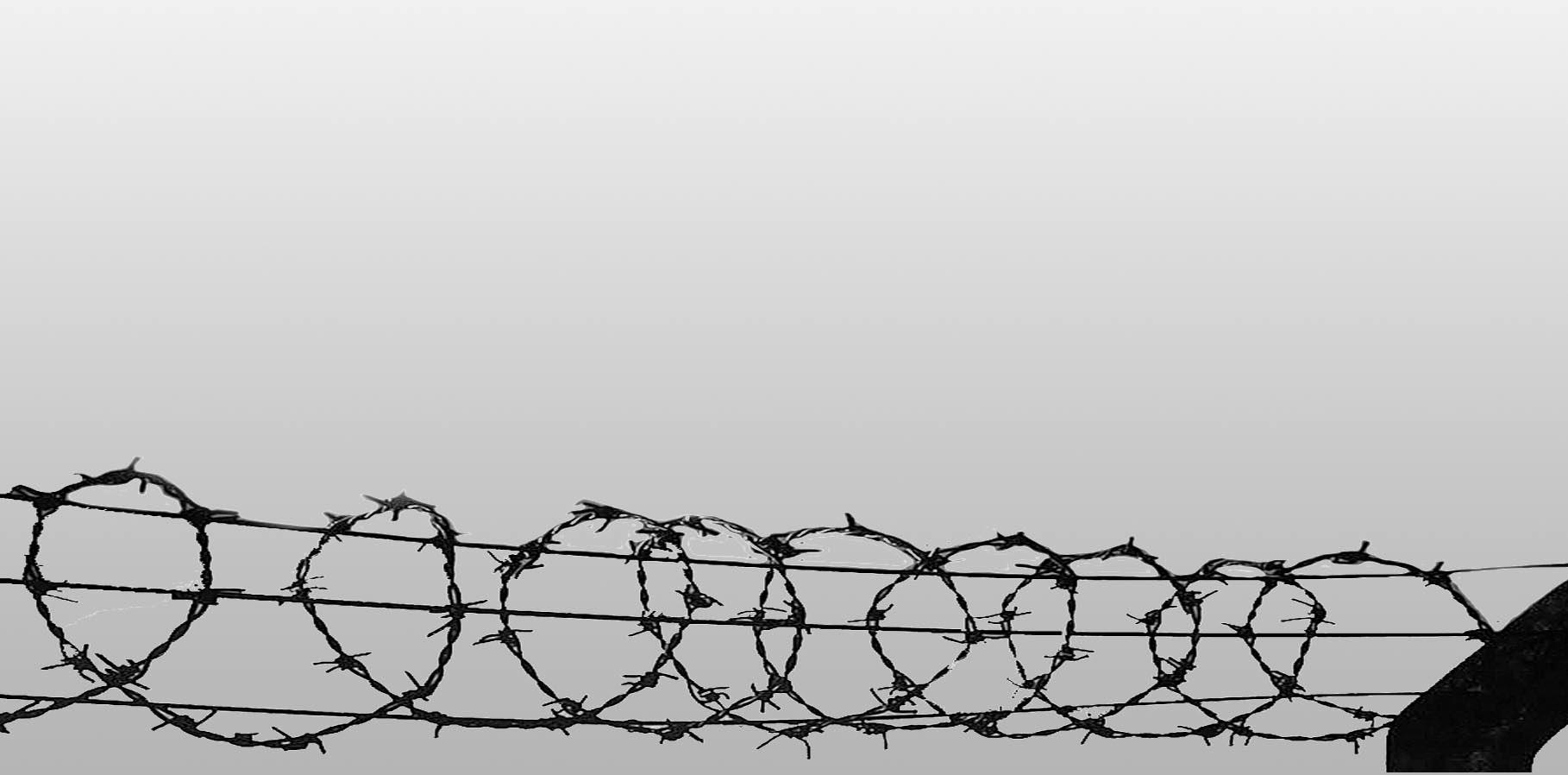
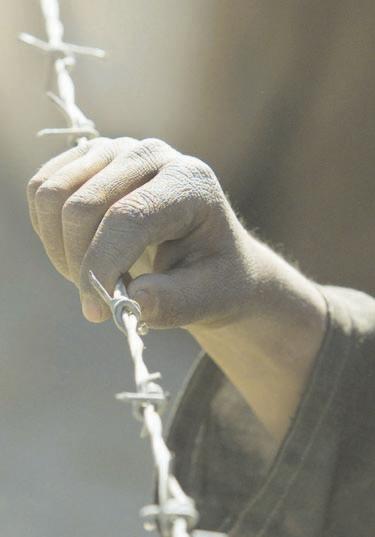
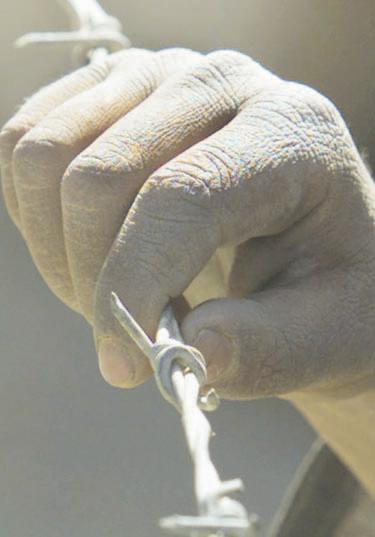
The Australian story: Welcome and Exclusion
First Australians and settlers
The early relationships between the white settlers and the first Australians illustrate the many reasons we so easily exclude people and do not welcome them.
When the British settlers met the Indigenous people, the differences of language and culture were so great that it was difficult for them to meet as fellow and equal human beings.It was easier for the powerful newcomers to look down on the first inhabitants as primitive, as barbarians, as less than human.Lack of mutual understanding makes it difficult to look into the faces of strangers and to welcome them.
Lack of understanding soon grew into hostility when the newcomers took control of resources on which Indigenous people depended in order to maintain their traditional way of life.They built on traditional sites and fenced land on which the Aborigines had hunted.Competition for resources led to hostility, violence and fear.
In many parts of Australia there were massacres and incidents of a kind that are more common in civil war than in peace.
Sicknesses to which Western bodies had become accustomed also proved lethal for Indigenous Australians.The result was a land organised by the new settlers in the interests of the economy that they themselves had instituted.The relationship between the settlers and the Indigenous people was now one between a powerless group and an economically and politically dominant group that made the decisions for the weaker.
It is very difficult for adults in unequal relationships to welcome one another.In the Australian situation the dominant regarded the others as racially and culturally inferior, destined to die out because of their inferiority.Although the plight of the Indigenous people aroused some sympathy, the newcomers saw the first inhabitants through their own eyes, and made laws that did not respect Indigenous traditions.The powerful white settlers removed children from their distressed families, placed them on reservations and subjected them to a regime the settlers would never have accepted for themselves.Indigenous Australians were regarded as a problem to be solved.
The early Australian history of relationships between races is bleak.But in it we also read accounts of people who became interested in the first Australians and related to them as human beings.Some formed loving relationships and marriages that crossed racial boundaries.In rural areas, stories are told both by landholders and members of

the local tribes about some relationships that were respectful on both sides.Some settlers risked ostracism by criticising their neighbours who treated Indigenous people cruelly and exploited their labour.
Unsurprisingly, there was exclusion;more surprisingly, there was also welcome. This pattern of exclusion and welcome was also seen in churches.Their members shared many of the attitudes of their society, but they also preached and tried to live by the Gospel of welcome.Guided as they were by principles of love and commitment to their faith, many Christians accepted hardship and suffering in establishing missions to the Indigenous peoples.Some also protested at the way in which the latter were exploited and mistreated.Missionaries were, however, commonly disappointed at the lack of impact they believed they had made on the people whom they served. Their sense of failure arose partly out of their desire to convert nomadic people to the forms of a European Christianity.They found it hard to appreciate positively the religious world, the nomadic life and marriage customs of the Indigenous peoples.In turn, the Indigenous people saw the missionaries as a source of material goods, but also as agents of an excluding and uncomprehending culture.
White Australians and other races In time, the predominantly British and Irish immigrants to Australia had also to deal with immigrants of other races.The most significant groups were from China and the Pacific Islands.The former came to seek their fortune in the gold rush, while many of the latter were kidnapped and forced to work on the canefields where, it was believed, Caucasians could not safely work because of the heat.
The same factors that led to the exclusion of Indigenous Australians also made it difficult to welcome the non-white immigrants.
Because the Chinese differed so sharply from their fellow miners in their language, customs, dress and appearance, they often provoked hostility in their fellow diggers in the harsh and volatile conditions of the diggings.Pacific Islanders, too, were feared as cheap labour which would cost native-born Australians employment under fair conditions.To make a more equitable society was an all-consuming struggle for many workers.
When issues of racial difference and economic justice coincided, the concern for equity was supported by the wildest of prejudices.
At Federation, Australia adopted the “White Australia”policy, which effectively restricted immigration to people of European descent.
Many Chinese and Islanders, including some born in Australia, were deported to their countries of origin.Would-be immigrants were subject to a dictation test designed to exclude those of other races.
Australians who came from minority groups met both exclusion and welcome.Exclusion was always bitter, but the effects of welcome were often more lasting.The distinguished Australian, Faith Bandler, born in 1918, a descendant of South Sea Islanders and later to become an advocate for racial justice in Australia, recalls playground prejudice.She was 14.
It was recess… and she was trying to stop a gang of kids taunting a Jewish girl who had just arrived in town.They were shouting
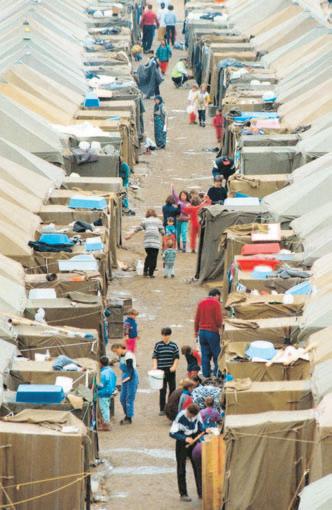
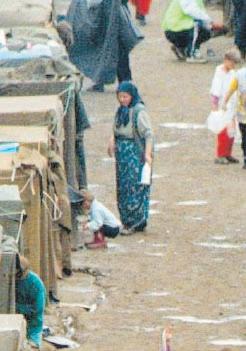
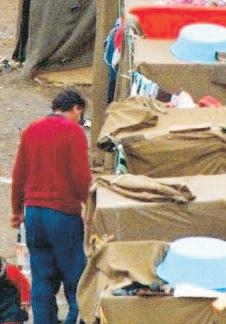
at her:“You killed Jesus Christ! You killed Jesus Christ!”Says Bandler:“When told them to give it away, they started following me chanting:‘You killed Captain Cook! You killed Captain Cook!’”
(Marilyn Lake, Faith:Faith Bandler, Gentle Activist, Allen & Unwin:Crows Nest, 2002, p.15)
But Faith stayed at school because some of her teachers welcomed her.With her lunch money she bought a tie for one teacher who had been kind to her.
“Shyly I handed him this tie and looked in his eyes and they were full of tears.I’ll never forget that.So he told me ‘sit down’and I just sat down and found it hard to leave him.He was such a beautiful person.”(Lake, p.14)
These stories, with their mixture of exclusion and welcome, of discouragement and encouragement, of the extraordinary power of kindness shown by a good person, will be familiar to any Australian who has belonged to a minority group.
Immigrants after 1945
After 1945 the face of Australia became much more diverse and the nation more prosperous.The experience of the 1939-
older immigrants.
Still, many also found people who made them feel at home.Groups established to help immigrants settle were very generous with their time and expertise, and some Australian families offered hospitality.The churches were especially important, because there they found a place where they could meet to pray in their own language and celebrate their own culture.In time, most groups had chaplains and found a measure of hospitality within established parishes.Some immigrants found Australian Catholicism cold and forbidding, but many came eventually to find a home.One Australian couple remembers with affection welcoming a large Dutch family, dressed in traditional clothes, coming over the mullock hills to their country church, singing songs of their own land.The family remembers the difficulty of settling into another culture and another style of church life.
Multiculturalism
It was not in the national interest to treat immigrants simply as individuals who could leave behind their own culture and immediately settle into Australian society.Because
began to receive a large number of Indochinese refugees.The Government and community groups welcomed them initially with open arms.The churches were particularly important in extending this welcome. Some religious houses opened their doors to refugees, and the St Vincent de Paul Conferences offered great practical help. Indeed, many Cambodians still refer to the Vinnies who first met them as Mum and Dad – they are blessed with hundreds of children!
As well as remembering their past, those who come as strangers often need to let go of it.Refugees especially have bitter memories of brutal relationships endured in poverty and violence, and unforgiving attitudes between people of different races or religions.To live in a democracy where there is free expression of opinions, and where people must negotiate and represent the values of a diverse society built on tolerance, is a challenge.It has largely been met.In Australia, ethnic tensions among different groups of immigrants have not been significant.The more pressing challenge is for the majority to welcome minority groups.
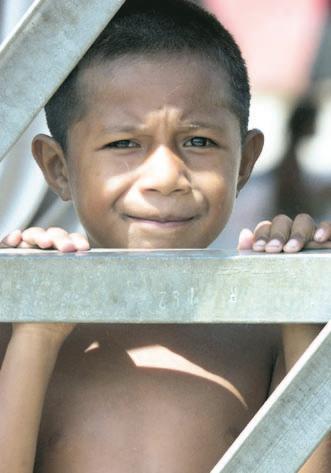
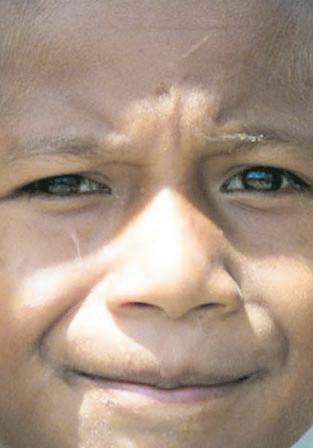
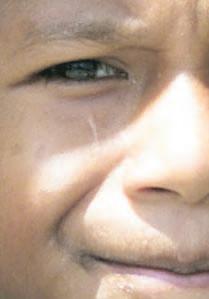
cern for one's own interests alone.These for ms of discrimination are incompatible with belonging to Christ and to the Church. (Jubilee of Migrants and Itinerant People Homily of Pope John Paul II, June 2, 2000 par.3)
In Australia, the desire to exclude is expressed most clearly in a hostile attitude to refugees and asylum seekers.The refusal to allow the asylum seekers on the Tampa to land, the excision of parts of Australia so that these are now places where people cannot claim refugee status, and the detention for prolonged periods of people, including children, behind barbed wire fences in the most inhospitable parts of Australia, are powerful symbols of Australian exclusion. These policies, exacerbated by some influential newspapers and talk-back radio shows around the nation, have won the support of a politically significant number of Australians, many of whom themselves were once welcomed as refugees. These patterns of exclusion have also touched the lives of refugee groups and immigrants from the Middle East.The events of September 11, 2001, the consequent military action in Afghanistan, the

1945 war led Australia to accept many people of a non-British background.
Governments believed that we needed a larger population to defend ourselves and to industrialise.As our needs could not be met solely by British immigrants, we sought people from Southern and Eastern Europe, many of whom had been displaced by war.
Immigrants from this time remember the mixture of welcome and exclusion facing them in Australia.Although the exclusion they experienced was often not deliberate, it nonetheless had an adverse effect.They might have been accepted personally, but most native-born Australians showed little interest in their lives in Italy or Poland or Croatia and their traditions and language were not appreciated.They were expected to assimilate quickly into Australian society as if they had no past, no culture of their own.Until they spoke English they were handicapped;in dealing with hospitals, bureaucracy and business, they found that Australians could understand neither their language nor their customs.Life in Australia could be profoundly difficult, particularly for
of this expectation, some immigrants had returned home disappointed while, of those who stayed, many struggled to live productively.Governments eventually realised that immigrants derived from their own communities the skills and courage needed to live in Australia.They encouraged various state community organisations such as Good Neighbour Councils to help people adjust to life in their new adopted home. These practical steps implied a more welcoming attitude to immigrants:requiring them to accept the responsibilities of citizenship, while respecting their own culture as a gift that could be integrated with the gifts of other Australians.This policy and attitude came to be called multiculturalism.It became controversial in its detail, but in seeing immigrants not as individuals who had simply to assimilate, but as persons gifted by their own communities and culture, it respected their dignity.
As this more welcoming attitude to immigrants was adopted, the White Australia policy was gradually abandoned between 1949 and 1973.Shortly afterwards Australia

Welcome and exclusion today
Sadly, the national mood today is more fearful and more suspicious of people who are different.Less welcoming attitudes reflect economic and political pressures and anxiety about security.Australia has seen rapid change in work practices, in security of work, in the emphasis on competition, in public spending that has not kept pace with the community’s needs and the withdrawal of services like transport and power from public responsibility.These trends have been worldwide.
Although national wealth might have increased, people generally feel less secure.There is a growing gulf between the richest and poorest in society.Throughout the world, such economic inequalities have bred resentful attitudes to people who are different.These have been intensified by the anxieties caused by terrorism.Pope John Paul remarked:
Unfortunately, we still encounter in the world a closed-minded attitude and even one of rejection, due to unjustified fears and con-
bombing in Bali, the war in Iraq and subsequent terrorist attacks have caused distress and anxiety in many Muslim communities, as well as in the general Australian population.These tragic events have also been followed by crudely argued theories that Islamic immigrants cannot accept Australian values and should not be welcomed here. Such theories have been demonstrated in verbal abuse of Muslim children, vandalism directed against mosques, and hostility among groups of young people in poorer suburbs.
But if the public face of Australia has been harsh and unwelcoming, many Australians, including church groups, have passionately expressed their desire for a more welcoming society.Some have made their houses available to asylum seekers and refugees, organised discussions of refugee policy in rural centres, taught asylum seekers, visited detention centres, provided free medical care to those deprived of medical benefits, offered free legal advice and lobbied the government.
This practical welcome has been largely
ecumenical, spontaneously bringing together people from many local churches.The Australian Catholic bishops, too, have been among those who have persistently called on Australia to welcome refugees and immigrant groups within the community.If our time has been one of public exclusion, it has also been one of personal welcome.
The Church recalls the Gospel account of Jesus and his family as refugees seeking asylum in a foreign land.The story of The Flight into Egypt carries great relevance to events faced by millions of children and their families in today’s world.In many respects it is their story.It presents a challenge to Australia, as one point of destination for people seeking asylum, to recognise the kinds of threats faced by the Holy Family in this Gospel passage.
Welcoming the stranger
Jesus and the stranger
The stories that Christians tell are of a welcome that overcomes exclusion.The people of Israel are to be hospitable to strangers because God had welcomed them when they too were strangers.Nor is God exclusive:the Jews are God’s chosen people, but other nations, kings and prophets are also God’s instruments.
Of course, life did not run so sweetly.Like modern Australians, the ancient people of Israel found it difficult to welcome strangers, particularly in times of war and economic hardship.They easily assumed that because they were God’s chosen people they were the only people whom God cared for. The story of Jonah challenged this view: it portrays a God who loves the people of Niniveh, and it discredits Jonah for sulking because God spared the people.
In his life and teaching, Jesus stressed God’s love for strangers, particularly people excluded because of their race or their morals.He insisted that God’s Kingdom had a place for tax collectors and prostitutes.In the Gospel, meals were often a battleground because the Pharisees believed that only those with whom God was pleased should be invited.Jesus insisted that sinners should be invited because God loved them and invited them to conversion.
The Gospels often praise foreigners.Today the term Good Samaritan is commonly used for a person who shows kindness to strangers in need.Samaritans were members of a despised race and religion, and to hear them held up as models shocked Jesus’hearers.In John’s story of the woman by the well, we meet another Samaritan. She is surprised that Jesus should put himself out to speak to her, since she is handicapped by being both a Samaritan and a woman.But Jesus approaches her simply as a person and offers her God’s salvation.
In his stories and actions, Jesus meets strangers, looks into their faces, engages them in conversation and reveals a God who loves all human beings.
In his teaching, too, Jesus addresses the anxieties and lack of imagination that make us exclude people.To dispel the anxiety that makes us see strangers as competitors, he invites his hearers to consider the flowers of the field.He also praises the goodness of the hated Samaritans, Romans, Gentiles and tax collectors.He urges them to love their enemies, imitating God, who makes
the rain fall on the good and the evil alike.
Jesus’insistence on God’s universal hospitality made him a stranger in his own land. He was taken outside his own city to be crucified as an outsider.But the early Christians recognised that it was by Jesus’ exclusion that they had been invited to be God’s people.Others remarked on their hospitality, both to visitors from other Christian communities and to those in need. Their way of life expressed their gratitude to God, who had called them from being strangers to follow Jesus’way of hospitality.
Right from the start, Christians were challenged to embrace difference.At Pentecost, the crowds heard the Apostles in their own languages.The Spirit united them in faith in Jesus Christ, but respected their differences of culture.They remained Greek or Jew, male and female, slave and free, but were all welcomed by Christ.St Paul later insisted that Jewish religious customs not be imposed on Gentile Christians, who were to be received with acceptance of their own cultures, languages and histories.
Human Dignity and Discrimination
The Gospel urges us to welcome strangers because we are all precious in God’s sight. Our worth does not depend on the colour of our skin, our customs, or our religion.We are made in God’s image, each deeply loved by God, and that is finally the source of our human dignity.Because each of us is infinitely precious, no one may be treated as a thing or used to achieve some grand goal.
When we welcome the stranger, we welcome Christ.
How can the baptised claim to welcome Christ if they close the door to the foreigner who comes knocking? “If anyone has the world's goods and sees his brothers or sisters in need, yet closes his heart against them, how does God’s love abide in him?”
(1.Jn.3.17.Pope John Paul II, Message for World Migration Day 2000, No 5)
Because all human beings are equal in God’s sight, it is wrong to discriminate against people on the basis of nationality, race or religion.Discrimination corrodes their self-respect and corrupts the humanity of those who discriminate.Ultimately it weakens the society which tolerates discrimination by encouraging a climate of insecurity and selfishness.We can see this in societies that practised anti-Semitism, apartheid or “ethnic cleansing”.There, people found it difficult to look others in the face or to see them as equal and free before God.They could not imagine, or they ignored, what it meant for people to be deprived of home, land and livelihood because of their religion or the colour of their skin.
The gift of diversity
Culture, language, religion and nationality are important to us because they are the building blocks of our identity and self-confidence.They shape our relationships to one another and our world.Our language and culture give us eyes with which to see our world, words and silences with which to celebrate it with other people, and the words and rituals that open a path to God.Our culture, language and religion are not like clothes that we can change when we travel. They are like the skin that enables us to go confidently into our world;they are not possessions but part of our self.To expect peo

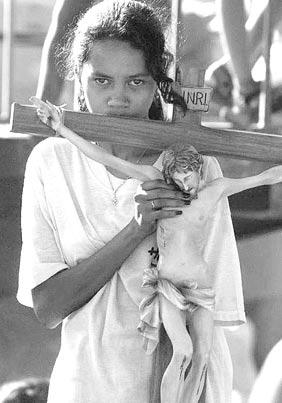
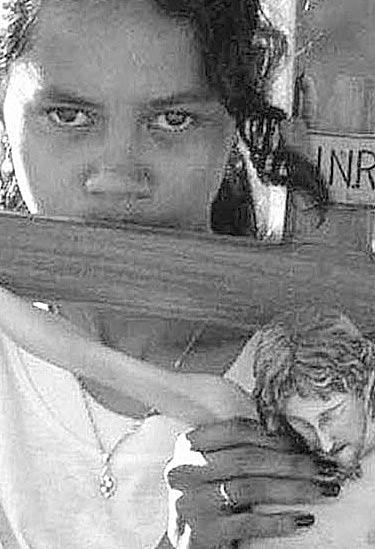
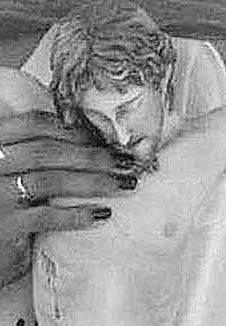
ple to give up their own culture when they enter ours is like asking them to amputate a limb. Respect for persons demands respect for their cultures.What makes us different from one another is what most enriches us as human beings and makes possible deep relationships between us.Our differences reflect the variety and inexhaustible beauty of God.If multiculturalism implies that we should not only support immigrants as individuals but should also regard their culture as an enrichment, it simply states what ought to be obvious.
Churches nourish the spiritual and cultural life of immigrants and help them feel at home in their adopted land.Because our relationship to God lies at the heart of who we are as persons, it is vital for us to be able to pray in our own ways and to hear the Word of God in our own language.The churches that receive immigrants make a cultural space where people can pray together out of the richness of their own culture. This has been true in Australia, too.Many immigrants at first seek strength and comfort in their ethnic church community to help them cope with the shock of their new life.As time passes, they also begin to put down roots in the local church and parishes.The two communities and two cultures knit together slowly, sometimes over generations, like a branch grafted on to a tree.For the Australian church, the challenge is to welcome them as new branches bearing fruit.
Respect for other beliefs
If our Christian faith lies at the heart of who we are, that is true also for those of other religions.To welcome them as persons, we must respect their conscience and their religious beliefs.This is not always easy.Historically, religious differences have often spurred wars, waged by Christians as well as by others.But one of the most significant documents of Vatican II, the Declaration on Religious Freedom, insisted that we must respect the right of all persons to choose and to exercise their own religion, because God draws each of us in the depths of our own heart. While God’s final saving Word is spoken in Jesus Christ, the ways through which God calls people are many and mysterious, including their religious traditions.So, respecting the faith and religious views of other people is not asserting that all religions are equally good;it is respecting the mystery of God’s love.
Our encounter requires that we strive to discern and welcome whatever is good and holy in one another, so that together we can acknowledge, preserve and promote the spiritual and moral truths which alone guarantee the world's future.
(Pope John Paul II, Meeting with Religious Leaders, November 7, 1999, New Delhi, India)
Respect for those of other religions has come under pressure, particularly after terrorist attacks made in the name of Islam and a climate of anxiety about terrorism.It has been all too easy to identify Islam with terrorism, and to project our fears about security on to Australian Islamic communities and asylum seekers who have fled from tyranny.It is also easy for populist politicians and commentators to feed prejudice against Islamic immigrants by referring to an alleged link between asylum seekers and terrorists, and by claiming that Islam and Australian values are incompatible.In weighing these charges, we should remember that Christians were once the object of similar attacks in the Roman Empire, as were Irish Catholics by their Australian critics.
It is also unfair to identify terrorism with Islam, many of whose leaders have been proponents of peace. That many terrorists invoke Islam to justify their violence should not discredit the religion.If it did, the Catholic or Protestant churches would be discredited by the paramilitaries in Northern Ireland who fly sectarian flags, and Christianity itself would have been discredited by the rogue Crusaders who ransacked Constantinople and committed atrocities in the Holy Land.What these groups did, however, had nothing to do with the life, example, teaching or presence of Jesus Christ in the church.
What can we do?
The first step: Acquaintance
What can we do as adult members of our neighbourhood, in our workplace, in our community to welcome those different from ourselves? Welcome begins when we look into the faces and learn the names of those who are different from us.If we are alone in a foreign place, the most precious gift we can receive is the friendly interest that a local takes in us.When we meet people who look or sound “foreign”, we have a choice:we can pass by with our heads down, or we can meet their eyes and, if the occasion arises, converse with them. Of course, this can be hard to do because we are afraid and do not know what to say.But we can never welcome strangers unless we go outside our own comfort zone.When we are interested in people, it becomes natural to accompany them, and then to welcome them into our homes and churches.
Parishes
To help strangers find a welcome in our parishes, simple things are often the most important.Visitors to a parish feel welcome if someone greets them;they often feel excluded if no one notices them, although many parishes offer generous hospitality to migrant communities and their chaplains.Some parishes have statues of various national patrons and celebrate their feast days, and welcome the musical gifts and the hymns of different ethnic groups.It is also common for parishes to celebrate a day for all nations.Given anti-Islamic feeling today, we should find ways to make contact with local Muslim groups.Small overtures like these suggest that our diverse languages and cultures are a gift, not a problem.
Catholic schools
Catholic schools are a treasure for learning the welcome that faith requires. Young people can confront the prejudices of society there, and learn to find in their differences a source of richness.
Many primary schools welcome students of 50 or 60 nationalities and diverse religions, including Buddhists and Muslims. When they are encouraged from time to time to pray publicly in their own languages and to explain with pride their native customs, they come to appreciate the richness in diversity.
After the anti-Islamic anger that followed September 11, 2001, some schools invited students from Muslim schools to speak with their own students.Such actions also confront any prejudices that parents may have.Some schools have had to resist pressure to exclude children of an Indigenous or Muslim background.They have been the conscience of the community, at times changing local attitudes.
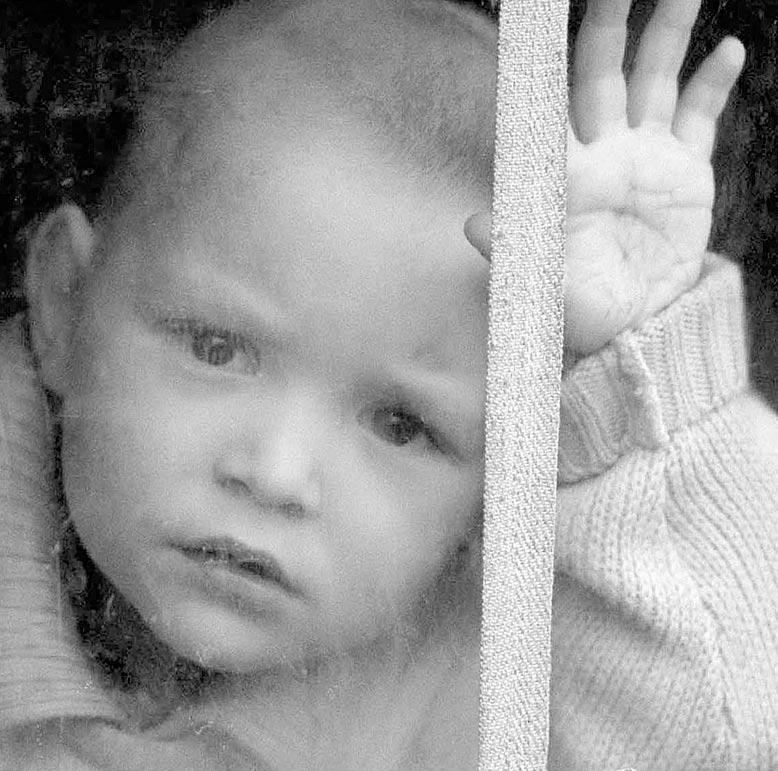
Local communities
At a time when the majority of Australians appear unwelcoming to asylum seekers and immigrant groups, it is essential to change these attitudes at the grass roots.Some people join groups that hear the experience of asylum seekers and offer them practical support.In country areas, groups invite refugees to meet local people and hold meetings to dispel the myths about asylum seekers and Islamic culture.In the cities, other groups tutor asylum seekers and their children, and help provide housing and medical attention for people excluded from the entitlements of ordinary Australians.Others hold prayer vigils to ensure that those detained under harsh conditions are not forgotten. Many of these activities are organised by church groups, usually on an ecumenical basis.This kind of cooperation in making Australia a more welcoming society also leads us towards the full unity which Christ wants for his church.
Australian public life
Many aspects of Australian life are built on exclusion.To change them, the first steps are to be critical of arguments put for excluding people, and to encourage public conversation.When the word racism is used, conversation usually dies.Those arguing for policies of exclusion are called racists, while those who rebut their arguments are accused of calling them racists.When we listen to the opinions of politicians, columnists and radio talk-show hosts, we must ask whether their ideas and the ways they express them encourage us to be more or less welcoming.Unsupported remarks – for example, that asylum seekers and Muslim immigrants may be terrorists or may harbour disease – are wrong and encourage fear and exclusion.Teachers in schools near immigration detention centres have remarked
how the attitude of local townspeople
hardened after such remarks.We should therefore be critical of such speech because it is destructive.But reasoned conversation about the delicate issues of immigration and community harmony should be encouraged.We should be concerned above all that Australian policy be morally based:that it respect the human dignity of immigrants and asylum seekers and recognise the claim that the needy have on the privileged. Church groups can and must help define what is acceptable political behaviour.In times of insecurity, politicians are always tempted to find scapegoats against whom to direct community anger. Immigrants, Indigenous Australians and refugees are easy targets.When we believe that politicians are attacking vulnerable groups for electoral gain, as has happened at times in recent years, we must show our concern at such unacceptable behaviour.
Finally, we should also recognise the broader issues that lead a society to be welcoming or excluding.When we are anxious and insecure, we are likely to see other people as hostile and to exclude them.Today, many people are anxious about such issues as national security, economic inequality, the effects of competition, and the struggle for community.Their anxieties encourage a tendency to make scapegoats of groups seen as competitors for jobs or scarce resources.
We must therefore reflect on what kind of Australia will be a welcoming country and will nurture a welcoming attitude in our children.Will it be an isolationist, suspicious and aggressive Australia, or a fair-minded nation characterised by its sense of justice and its generous heart? May Christians, in the love of Christ, set an example of openness and generosity towards our fellow inhabitants of every race and background.
A new way of life

V ocation S tory
The Australian Catholic Cursillo Movement is a movement of renewal within the Catholic Church, responsible to the bishop of a diocese. It began in Spain in the 1940s and has spread throughout the world. The name Cursillo simply means “short course” in Spanish.
The purpose of Cursillo is to present a way of living as a Christian in the world. The movement offers a method by which our relationship with God may be developed, deepened, lived out with other Christians and used by God to reach out to others.
The method is experienced over a three day retreat or course, led predominantly by lay people with the support of a priest. The three day experience is built upon a structured program of short talks as well as discussions, liturgy, music and other activities. All these centre around daily Eucharist and are further supported by prayer.
It is the experience of many people that after a Cursillo retreat, Christian living takes on a new dimension, with a fresh awareness of God’s love and purpose for everyone.
As one of the founders of Cursillo said: “ It is possible to encounter God in many other
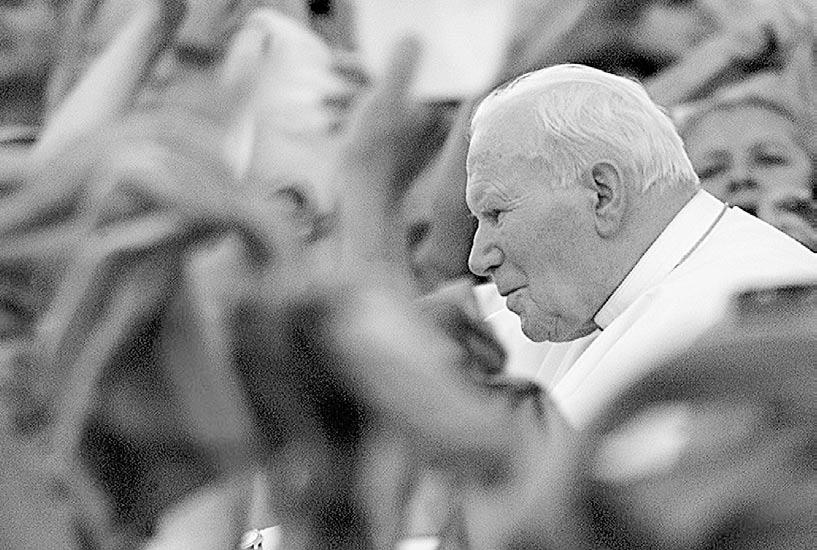
ways than Cursillo – encountering God is easy – it is following Him afterwards that is the problem”.
Cursillo provides a follow-up structure and mutual support. Small groups are formed in which people may continue the learning, growing and sharing, begun on the Cursillo retreat.
In short, the Cursillo
● identifies what is fundamental to Christian living.
● emphasises personal faith development.
● brings out each individual’s responsibility for living and spreading the Christian life in the
environment immediately around them.
● provides an enjoyable experience of living in a Christian community.
The Catholic Cursillo Movement came to Australia in 1965. It was active in Western Australia until the early 1990s but the secretariat has been in recess in recent years.
There is a move to reactivate the Movement in the West and anyone seeking more information is welcome to contact Andrew Booth in Perth on (08) 9364 9567 or email acbooth@connect.comdek.net.au.
Fr om the goldfields to 90 golden years
Mildred Fuller (nee Harvey) has turned 90. She was born on September 10, 1913 to Fred and Fanny Harvey who lived in the Beaconsfield/South Fremantle area. She is the oldest of 8 children, of whom 5 are still alive.
She is a direct descendant of Western Australian pioneers, being the great grand-daughter of one of the first Caucasian women born in the new colony of Western Australia: Harriet Lewington, born in 1833.
She is also the great granddaughter of a convict who arrived on the first convict ship in Western Australia: George Postans, who arrived on the Scindian in 1850.
Her father Fred prospected for gold in the eastern goldfields at the time of the gold rush in the 1890’s and worked claims around Coolgardie and Kalgoorlie.
From an early age she has been an industrious person. As a child she helped her mother care for the other children in the family. She left school shortly before she turned 15, and commenced work at the Mills and Ware cake and biscuit factory. She was one of the many who were displaced during the Depression, but soon found work at Nurse Bathgate’s hospital in East Fremantle.
In 1935 she married George Fuller, and after living in rented accommodation in West Leederville and Shenton park for some years they moved to a new house in Nedlands in 1939, where she raised her family of six children, five boys and one girl.
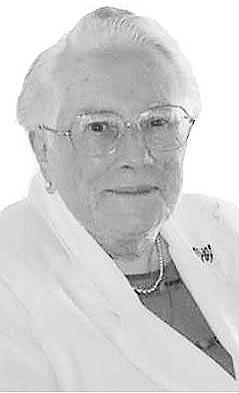
Life was not easy in those days, wit the outbreak of war, shortage of money and the need to do all domestic work by hand. Her focus was on nurturing her growing family, doing endless amounts of cooking and cleaning, washing and ironing, sewing, and other domestic chores.
She still found time to engage in a variety of handicrafts including knitting and cake decorating, and made and decorated many beautiful cakes for weddings and other occasions. She bred canaries for many years. She learned to play the piano and organ. She still crochets, and is highly regarded for the quality of her crocheted work.
Caritas: translating words and ideas into assistance for our wider family
Continued from Page 6
Caritas Australia works to help oppressed people to rediscover their dignity by taking greater control over their own lives.
Caritas Australia comes under the umbrella of the Bishops’ Committee for Justice, Development, Ecology and Peace.
Development programs include a wide range of initiatives in: health; water supply and sanitation; education and agriculture; as well as programs for women’s rights and leadership; the development of community leadership; the teaching of skills for developing income; assistance to communities after natural disasters and conflicts, and housing support for refugees and displaced people. Development programs are designed and managed by our local partners who are best
Emptiness led me to search
MMildred is a devout Catholic, and from the time she moved to Nedlands established a close relationship withe the sisters at the Carmelite convent which was just up the road from her home. This relationship continues to the present day, and she is still a great supporter of the sisters and their work.
Every life can be touched by sadness, and for Mildred disaster struck when her daughter Carmel developed Hodgkin’s disease as a teenager and in 1968 died at the age of 21.
In 1981 a couple of years after her husband George retired, they sold the house in nedlands and moved to a unit in the Salvation Army Village in Hollywood, where she still lives. Sadly, both her husband and her oldest son died in 1995.
Mildred might be old in years, but not in spirit. At about age 83, she decided that she wanted to learn about computers, so she bought one and soon found herelf sending email messages to overseas friends and taking minutes for local committees within the village. She is blessed with good healt and and excellent memory, and remembers full details of birthday s and wedding anniversaries of friends and relatives, even of distant relatives. She loves solving cryptic crosswords and enjoys an occasional flutter at the casino. But her greatest love is still her family; four sons, five daughters in law, sixteen grandchildren and seven great grandchildren to date.
placed to identify the needs and problems of their own communities.
As a member of Caritas Internationalis, one of the world’s largest and most effective emergency networks, whenever or wherever disaster occurs, Caritas can respond almost immediately, using local Church structures to deliver relief to the people in most need.
Caritas programs go to the roots of many of the issues which lead people to become refugees.
In Western Australia there are Caritas offices in the Perth, Broome, Geraldton and Bunbury Dioceses where the Diocesan Directors, the link between the Catholic and wider community, can be contacted. Caritas can be contacted in Perth on (08) 9223 1311.
y experience of growing up in Perth was very comfortable, with a loving family that supported me constantly. I always attended mass with my family and regarded my faith as being very important.. However, faith was a minor consideration when compared to other priorities such as sport, friends and enjoying life in any way I could.
Towards the end of my time at high school, I started to realise that there was an emptiness within me. In my desire to find some meaning in life, I became interested in other forms of religious thought that were popular and attractive. As a result, by faith became a mix of beliefs that had little resemblance to Christianity.
In my first year of university, this struggle to find meaning became greater. One day, by chance, I picked up a biography of St Francis of Assisi and started reading. The life of St Francis challenged every part of my life. I had everything I could ever want and yet my life was empty; this man had nothing, and yet he had a joy in his life that made me envious.
It was at that time that I began to take prayer seriously. It seemed clear to me that if God was real, and if he really did love me, then my response had to be either all or nothing. The decision was obvious: to give my life completely to follow God. A few
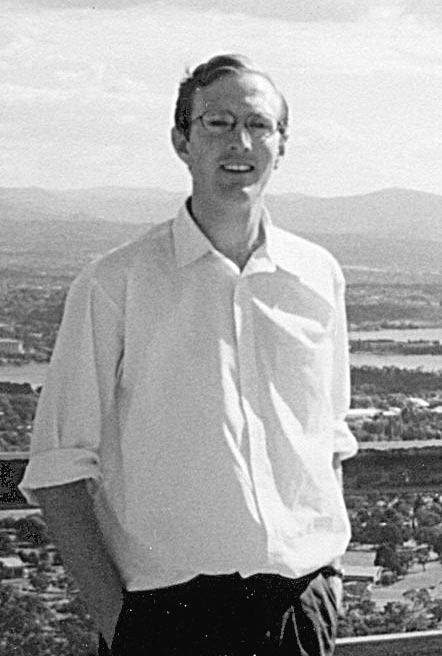
months later, I began to discover that God took my decision seriously.
One day, the idea of consecrated life came into my mind. The idea seemed crazy. I barely knew what consecrated life was, yet I couldn’t get rid of the feeling that this was what I was meant to do. After a long time of prayer and discernment, I ended up in Canberra. I had become attracted to a new Australian order called the Missionaries of God’s Love, who sought to live out the gospel in a radical way.
I joined the MGLs in 2000 and I am now studying for the priesthood with them in Melbourne. The last four years has taken me to many parts of Australia on mission and has shown me that God’s plan for my life is so much greater than any of the plans that I used to have.
- David Callaghan
See the Missionaries of God’s Love website at: www.mglvocation.org
The Record 18 September 2003 11
Pope John Paul II is greeted by scarf-waving pilgrims as he arrives at St Peter's Square July 29 for a special ceremony for the jubilee of the Cursillo movement. Photo - CNS
Mrs Mildred Fuller
R e a d T h e R e c o r d
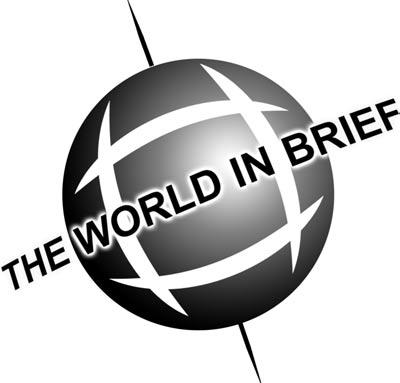
VATICAN CITY (CNS) -- God sometimes enters human history to unmask evil and defend victims, not in order to destroy sinners but to purify them and offer them a new existence in him, Pope John Paul II said.
"The goal of God's action is never destruction, pure and simple condemnation, and obliteration of the sinner," he said on September 10 at his weekly general audience.
"After purification through trial and suffering, the dawn of a new era is about to rise," he said. The pope said God does not stand idly by in the face of evil but "enters mysteriously on the scene in human history with his judgment that, sooner or later, exposes evil, defends victims and indicates the path of justice." After purification and liberation from evil, sinners are offered the "stupendous" gift of God's own spirit and a new existence in him, the pope said.
LONDON (CNS) -- Catholic bishops in England and Wales said a proposed law on care for the mentally incapacitated could pose a threat to the lives of patients. Archbishop Peter Smith of Cardiff, Wales said while the current law is vague and unsatisfactory, the proposed legislation is deficient.
"The government is right to seek to put in place a comprehensive legal framework to protect the rights of people with mental health issues and their families. As the draft bill stands, however, there are serious deficiencies with regard to its health-care provisions," he said. The Draft Mental Incapacity Bill will be considered by a joint committee of both houses of Parliament. The Catholic Bishops' Conference of England and Wales addressed their concerns to the committee in a letter.

International News
Catholic news from around the world
In Slovak heartland, Pope urges families to keep traditional values
By John Thavis
Celebrating Mass in Slovakia's heartland, Pope John Paul II encouraged the country's Catholics to preserve the institution of marriage and family values in their rapidly changing society. Tens of thousands turned out in the industrial city of Banska Bystrica to give the Pope a rousing welcome on September 12.
They packed the Square of the Slovak National Uprising in the old city centre, singing songs and returning the Pope's waves from the altar.
The 83-year-old pontiff looked and sounded much better than the previous day, when he arrived in Slovakia. He delivered the first and last parts of his sermon, and Slovak Cardinal Jozef Tomko read the rest.
When the Pope's first words in Slovakian rang out in a strong voice, the crowd broke into smiles and applause.
"Seeing the health he's in, it means a lot to us that he would come all this way and make a four-day trip across Slovakia," said 23-year-old Peter Sipula, who watched as the Pope was pushed across the altar platform on a wheeled throne.
"For us young people, it's an inspiration. If he can do such a thing, we have to do so much more because we are young and strong," he said.
The Pope's sermon struck a simple theme. Many Christians, he said, do not live their faith in their everyday lives -- especially when it comes to family matters. "Parents must educate their children to a correct freedom, so as to prepare them to respond properly to God's call. The family is the nursery where the little plants, the new generations, are nurtured. In the family the future of the nation is forged," he said.
In a message afterward to bishops, the Pope urged them to launch a new pastoral ministry to families, taking care to "pro-
Tra ditional way
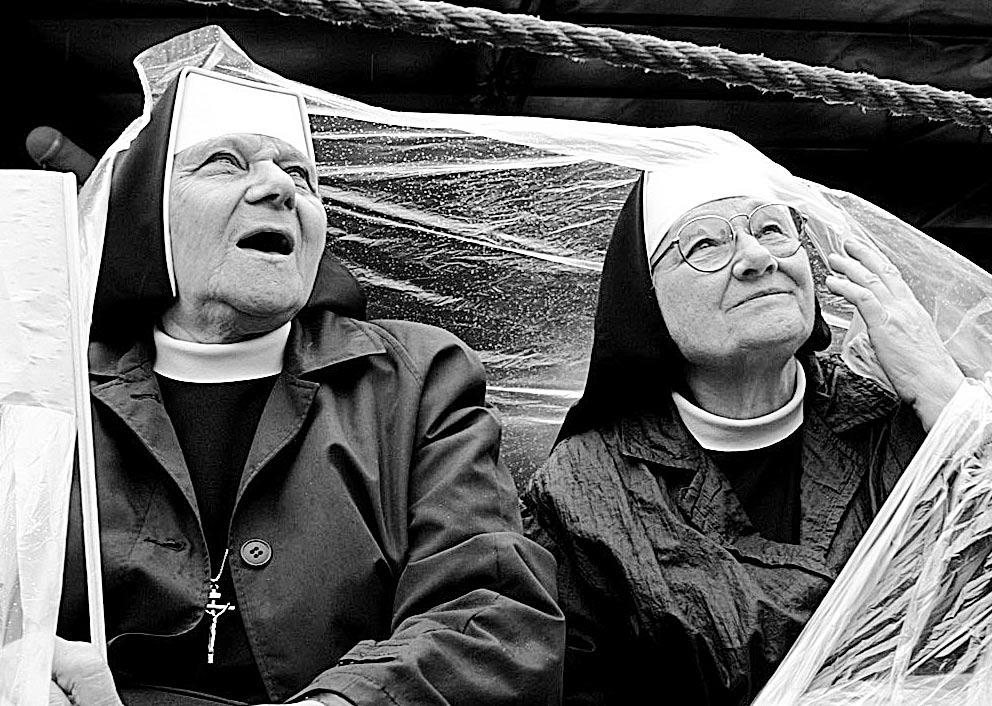
claim and defend the unity and indissolubility of marriage."
The Pope's comments touched a sore spot in predominantly Catholic Slovakia, where church leaders have blamed an influx of Western values for an erosion of traditional family values.
Church leaders are also worried about an increase in drug addiction, crime and delinquency among youths.
In Banska Bystrica, which communist authorities envisaged as a model industrial city, nearly one-third of the people still say they are atheist, and this has made it more difficult for the church to push its moral message in the social sphere.
The Pope reached out in a symbolic way when he reminded the local populace that the statue of Mary that stands in Banska Bystrica's main square was a "silent witness" to a bleak regime that tried to undercut religious values in society.
In fact, the statue was removed in 1964 before a visit of Soviet
leader Nikita Khrushchev. It was restored to its pedestal only in 1994 and was decorated with flowers for the papal Mass.
The Pope said Mary's willingness to participate in God's design was a model for all people.
"My dear brothers and sisters, let us make room for God. Everyone is called in some way to accept God into one's own life," he said. The Mass marked the official opening of the first local diocesan synod in 180 years, and church leaders were counting on the Pope's presence to ignite new interest in the event.
The 50,000 people who filled the square for the Mass reflected the changing ways in Slovakia. Some of the elderly in the crowd clutched rosaries, crosses or pictures of Mary. Younger people held up digital cameras, anxious to get a shot of the Pope. Above the papal altar, sharpshooters in ski masks stood watch from the windows of a traditional Gothic-
style residential building. They surveyed a wall-to-wall crowd dotted with Vatican flags and homemade banners.
In his message delivered to Slovakia's bishops at lunch, the Pope touched on the economic hardships that have affected some sectors of the Slovak population. Slovakia's planned entry into the European Union next year has increased prospects for economic growth, but not everyone is expected to share in the prosperity.
"Take care of the weak and the poor, in whom Christ asks to be recognized," the Pope told the bishops. He asked them to be especially close to the unemployed and to encourage society to create new jobs. The jobless rate in Slovakia remains high at around 15 percent.
The Pope also wrote about the strains of pastoral ministry and appeared to allude to his own physical sufferings when he said bishops should not let themselves be "overcome by difficulties and fatigue." -CNS
Cardinal caught up in conspiracy theories
The Mexican church said a cardinal charged by the government with laundering drug money was being framed for seeking justice in the murder of his predecessor.
Journalists waiting outside the house of Cardinal Juan Sandoval Iniguez of Guadalajara on September 11 reported that the cardinal dismissed the charges as "ridiculous."
The Archdiocese of Guadalajara later released a statement saying the charges were being used to discredit the Catholic hierarchy and divert attention from the investigation into the 1993 murder of Cardinal Juan Jesus Posadas Ocampo.
"Those who make these false accusations want the Cardinal Posadas case to be forgotten and to intimidate those who are demanding the truth," it said in the statement. Federal investigators were examining the banking records of Cardinal Sandoval, his deceased mother and 10 brothers and sisters, according to a leaked Justice Department document published in the Reforma newspaper on September 11.
The inquiry was prompted by evidence handed to police by former Attorney General Jorge Carpizo, who oversaw the investigation into the 1993 killing of Cardinal Posadas. On May 20 -- four days before the 10th anniversary of Cardinal
Posadas' death -- Carpizo told reporters he was giving the police evidence that showed Cardinal Sandoval was working with drug traffickers and had acquired "an immense and inexplicable wealth."
Mexican authorities have yet to solve the cardinal's murder to the public's satisfaction, with the appearance that the investigation has either been bungled or victimized through a conspiracy of political and religious figures.
In May, Mexico's six most senior bishops wrote a letter to Mexican President Vicente Fox seeking answers and demanding justice for the cardinal's killers. The leaked Justice Department document revealed
that alongside Cardinal Sandoval the police were investigating Cardinal Jose Salazar Lopez of Guadalajara, who died in 1991; Jose Antonio Ortega, a lawyer who represented Cardinal Sandoval during investigations into Cardinal Posadas' death; Jose Maria Guardia, the owner of a race track in the border city of Ciudad Juarez; and Fernando Guzman, a federal congressman from the National Action Party. After learning of the charges against Cardinal Sandoval, Archbishop Luis Morales Reyes of San Luis Potosi, quickly called a news conference and defended the cardinal.
The Record 12 18 September 2003
Catholic nuns wait in the rain for the start of Mass with Pope John Paul II in Banska Bystrica in central Slovakia on September 12.
Photo:CNS/Reuters
- CNS
God unmasks evil
UKBill concern
International News
Catholic news from around the world

Reconsider abortions say women
Catholic-Episcopal campaign asks women to reconsider having abortions
By Mark Pattison
WASHINGTON (CNS) -- Ten women, including actresses Jennifer O'Neill and Melba Moore, stood in front of the U.S. Supreme Court on September 10 to urge women who are thinking about having an abortion to reconsider.
All 10 women had undergone an abortion -- some of them multiple abortions -- and testified to their post-abortion regrets.
The women's appearance was part of a new campaign, Silent No More Awareness, to help women with post-abortion healing. The campaign also asks pastors to conduct services in their churches to promote healing for women who have had abortions.
The campaign is jointly sponsored by the Catholic organization Priests for Life and the National Organization of Episcopalians for Life, known as NOEL. There is a Web site, http://www.silentnomoreawareness.org, with information on the campaign, as well as a toll-free telephone number, (800) 3954357, to help women in crisis pregnancies.
The toll-free line is operated by the National Network of Pregnancy Centres and refers people in crisis pregnancies to a pregnancy centre near them.
Priests for Life associate director Janet Morana and NOEL national
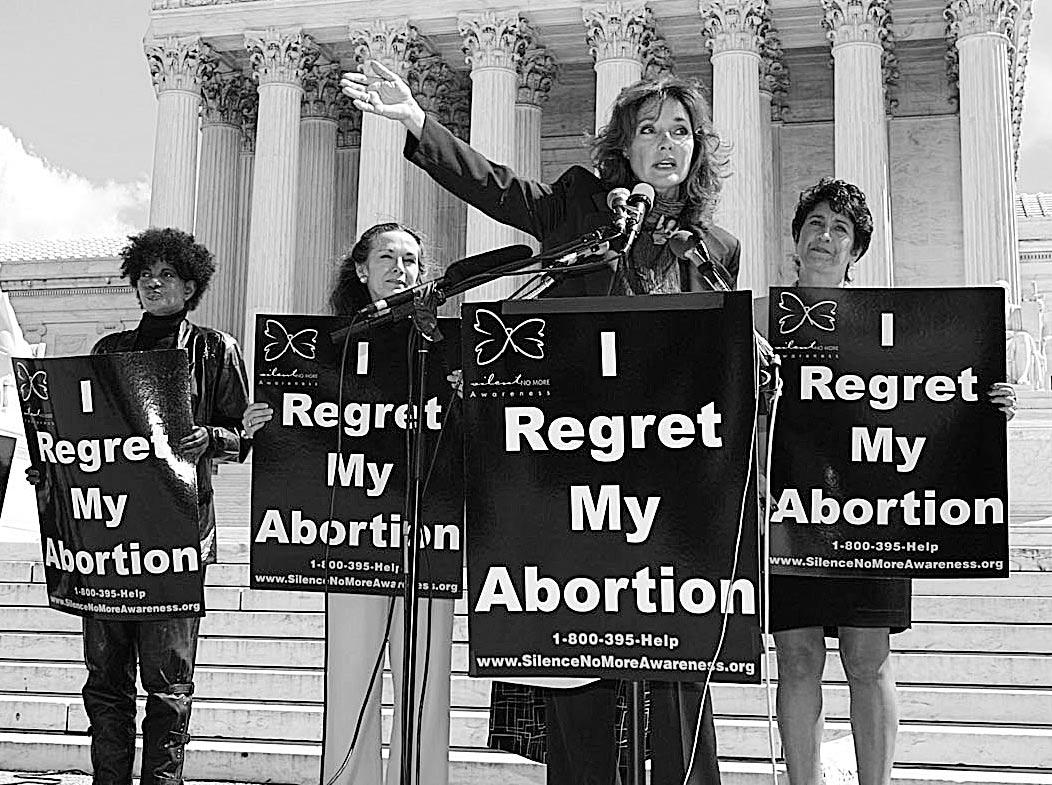
director Georgette Forney, cofounders of the campaign, called for the development of a wideranging study to measure the after-effects of abortion on women.
Moore, who sang an a cappella rendition of "Amazing Grace" at the end of the program, told Catholic News Service that she joined the Catholic Church last year, and is a member of Holy Cross Parish in New York City. She was introduced during the program as having had "several"
abortions. "I've been healed," she told CNS. Moore added, "AfricanAmericans used to know it was a terrible thing to kill your children. But nobody talks about it now.” She said she would continue to promote post-abortion healing for women: "I'm too mature a bornagain Christian to sit back."
O'Neill, the 2003 recipient of the Proudly Pro-Life Award from the National Right to Life Committee, said acting roles for her have been more sparse "since I fell in love with Jesus Christ. That was
Church not so “Catholic”
Atlanta Archdiocese to sue church network calling itself 'Catholic'
By Priscilla Greear
ATLANTA (CNS) -- The Atlanta Archdiocese is preparing to file a lawsuit against a network of churches around north Georgia that the archdiocese says falsely claims to be associated with the Roman Catholic Church and misleads members by conducting services that imitate the Catholic liturgy.
Archdiocesan attorney David Brown said a group of nine churches known as the "Capilla de la Fe" network not only calls itself Catholic but also has claimed association with the Roman Catholic Church through various forms of media.
It presents itself as Catholic through its Mass, its administration of sacraments, its leaders' clerical dress and its observance of other Roman Catholic traditions, he said. In an August 27 interview with the Georgia Bulletin, newspaper of the Atlanta Archdiocese, Brown said
the archdiocese planned to file an injunction to stop the churches from continuing to mislead the public and to "require that they advise the public that they are not associated with the Roman Catholic Church."
"We've attempted to work with their attorney on a cooperative basis. That has been unsuccessful so we're going to court," he said. "What they're doing in Atlanta is misrepresenting themselves to be associated with the Roman Catholic Church, and they're misleading these folks to make them believe they're part of the Archdiocese of Atlanta and none of that is true."
While Capilla de la Fe has no affiliation with the archdiocese or the Roman Catholic Church, the organization has identified itself as a "Catholic mission" and as a "Catholic charismatic" church.
In a July 28 letter to Catholics of the archdiocese, Atlanta Archbishop John F. Donoghue addressed the group's use of the word "Catholic."
"They give the impression that they are priests and loyal Catholics and in communion with the Roman Catholic Church," he wrote. "For months
now this group, 'Capilla de la Fe,' has been creating confusion in the Hispanic community by pretending to be in communion with the church and the magisterium of the church.
"They even use the same terminology that the Roman Catholic Church uses in referring to the Mass and the sacraments," he continued. "I feel I must inform you that this group is not in communion with our holy father, Pope John Paul II, and they are not approved by me as archbishop of Atlanta." This past spring a sign posted in the yard of the organization's headquarters in Norcross stated, "Catholic Mission. On this April 13 Palm Sunday receive a blessed palm."
Father Jose Duvan, priest-liaison with the archdiocesan Hispanic Apostolate, said that after discussions with the archdiocese the group stopped calling itself a "Catholic mission" but has continued to identify itself as Catholic.
"This group is not part of the Roman Catholic Church. Neither are they in communion with Pope John Paul II, and the archdiocese is worried about the confusion that this group is creating," said Father Duvan.
someone who's had one."
Missy Smith of Washington, who said she had two abortions and six children, said she "just crumbled" when she learned in the late 1990s of what she called "trafficking in baby parts" -- abortionists selling organs and other parts of aborted fetuses to hospitals and research facilities. Smith founded WAKEUP -- Women Against the Killing and Exploitation of Unwanted Persons -- to combat this.
"All of us (who have had abortions) know the sex of our child. Many of us have even named them," Smith said. Until mothers who have undergone abortions meet their unborn children in heaven, she added, "we shall always feel unrequited."
15 years ago. There's not much room in Hollywood for those who profess their love for Jesus Christ."
During the program, O'Neill said she had her abortion at age 22 or 23 after her then-fiance "went ballistic" upon learning she was pregnant. O'Neill had one child at the time, but said she suffered nine miscarriages after the abortion. "With every miscarriage I had, I felt I was being punished," she added. "If you're considering an abortion," O'Neill said, "talk to
Anita Reyes of Santa Fe, New Mexico, became pregnant 11 days after marrying her husband. She carried the child to term. But when the boy, now a seminarian, was 8 months old, she became pregnant again and by then knew her husband was abusive. Fighting back tears as she told her story, Reyes said she had an abortion two days before Mother's Day in 1978. Afterward, "I tried killing myself three times," she said, because of the guilt she suffered. She and her husband divorced. At a church healing service a few years ago, Reyes said, she saw Jesus walking toward her. "He looked into my soul and said, 'I forgive you,'" she said. She ultimately found the courage to tell her seminarian son about the abortion.
"I know that God does not throw away his gifts," Reyes said. "All of us have a little saint in heaven."
Commission in crisis
DUBLIN, Ireland (CNS) -- The Irish government said it will allow a child abuse commission to accept sworn statements and will change laws of evidence to allow greater use of testimony.
The government announced on September 10 that it was introducing the changes to "reduce the need for lengthy and adversarial oral hearings."
The commission's chairwoman, Mary Laffoy, resigned on September 2. The government said it plans to change the commission's procedures so that institutions or individuals who unduly delay hearings will bear a greater proportion of legal costs.
The government also said it plans to accelerate an appeal by the Christian Brothers.
The order is challenging a ruling by Laffoy allowing the public identification of deceased or elderly people charged with abuse.
In four years, the commission has heard testimony from 40 out of the 1,700 people who claim to have been abused.
Among the myriad of reasons cited for the commission's slow
pace are legislative delays, alleged lack of cooperation by the Department of Education and individual religious orders, and lengthy cross examinations of those who claim to have been abused, the government said.
In her resignation letter, Laffoy said the frequent reviews by the Department of Education had compromised the commission's independence and undermined her credibility. Laffoy resigned 24 hours after Minister for Education Noel Dempsey ordered a second review of the abuse commission, even though the findings of the first review have not been published.
Dempsey said in a statement that the costs for the commission, projected to be about $217 million over eight to 11 years, forced the government to scale back its scope.
The education minister acknowledged in his statement that mistakes had been made.
"It is fair to say that the scale and magnitude of the problem of investigating these 1,700 complaints was greater than had been anticipated," he said.
The Record 18 September 2003 13
Actress Jennifer O'Neill, spokeswoman for the "Silent No More" campaign, speaks out against abortion in front of the U.S. Supreme Court in Washington on September 10.
Photo:CNS/Reuters
Reviews
READING
Return Of The Heroes: The Lord Of The Rings, Star Wars, Harry Potter And Social Conflict. (172 pages)
By Hal G P Colebatch
Available from www.cybereditions.com
Reviewed by Brian A Peachey
This second edition of Return of the Heroes is classic Colebatch. Dr Colebatch, barrister, scholar and political scientist is, arguably, one of the outstanding poets and writers in Australia. In Return of the Heroes he displays his literary style and grace, but of more value is his discernment and philosophical depth.
He commences the book with the thought-provoking premise that "At the dawn of the third millennium it often seems that every traditional Western value, system of ethics and art form is collapsing. Notions of chivalry, heroism, nobility and valour - even to a large extent notions of dignity and modestywhich previously infused Western culture seem to have vanished."
Then with hope, which is the essence of the work, he writes: "But against a picture of endless collapse and upheaval there have emerged enormously popular works of film and literature that reveal underlying attachments to traditional Western Values.
The Lord of the Rings and Star Warsmore recently and in a different key, the Harry Potter stories - are among the most notable. The deep responsive cord they have struck tell more about the true state of culture."
The Lord Of The Rings is estimated to be the biggest-selling novel of the 20th century, with sales of at least 50 million. The first Star Wars movie is consistently
READING
Coldrey, B M. Child Migration from Malta to Australia 1920s to the 1960s, Tamanaraik Press, 2003.
R.R.P. $A 19.95, p&p, within Australia included and from Tamanaraik Press, PO Box 12792, a Beckett Street, Post Office, Melbourne Vic 8006
Email: busherw@bigpond.com
Tel: (03) 9480-2119
During the 1950s and 1960s, tens of thousands of Maltese emigrated, most to Australia. Of these 310 were unaccompanied child migrants coming to Australia to spend time in Australian orphanages before being placed in employment. This is a history of Maltese child migration.
Over the years 1950-65, 310 unaccompanied child migrants came to Australia from Malta; 259 of them were boys and 51 were girls. Most came from institutions in Malta; some from private homes. All were aged from five to sixteen years of age. Of these Maltese children, seven were sent to South Australia and the remainder came to Western Australia. All were Catholics. The Maltese youngsters faced a severe culture shock when they came to Australian orphanages.
Maltese child migration was an appendix to the much more numerous movement of

The Catholic perspective on popular culture
voted the best movie of the millennium and sales of the Harry Potter books have reached about 100 million in less than four years.
As a boy in the 1930's I enjoyed many Saturday afternoons at the movies enthralled with the adventures of heroes of space, Buck Rogers and Flash Gordon.
In The Unauthorised War Compendium, Ted Edward says that: "The most important idea Star Wars borrows from Flash Gordon is the idea of a fairytale in which technology plays the role of magic."
Colebatch looks back at the 20th-century which saw advances in doctrines of moral relativism, from Lenin: "We do not believe in an eternal morality, and we expose the falseness of all fables about morality," to Sir Julian Huxley: "There are no absolutes of truth or virtue, only possibilities of greater knowledge and greater perfection".
Colebatch's defence of J.R.R.Tolkien, author of Lord of the Rings and George Lucas, creator and director of Star Wars is a slashing attack on their critics, "who have run along modern nihilistics lines with a political agenda," (pp. 75-87). This is a literary gem and like most of the work is worth reading in isolation.
One of the most frustrating aspects of
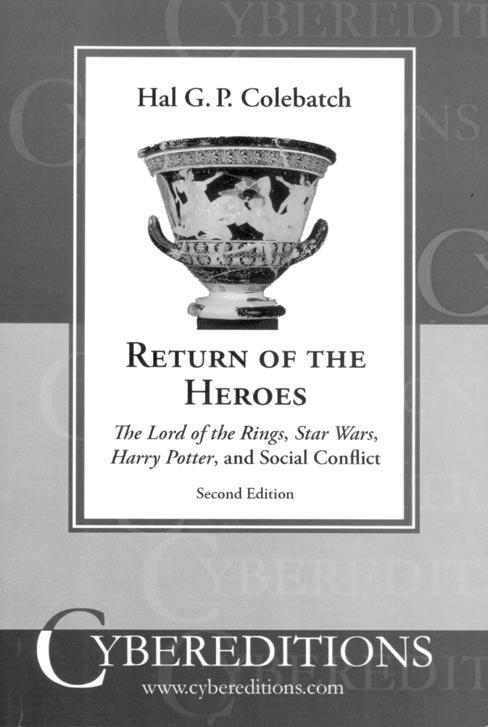
reviewing any work by Colebatch is the temptation to quote large pieces of it because of his insightfulness and the literary quality, which of course would

poor, abandoned, illegitimate children from Great Britain to its former colonies.
Child migration – a long-standing feature of British social policy – had no roots in Maltese society where large, extended close-knit families were the rule and abandoned, illegitimate children scarcely existed. However many Maltese were poor, Maltese families were large and the pressure of population on resources meant that from the nineteenth century many Maltese people had to emigrate to support their families.
Child migration was mooted first during the 1930s when the Christian Brothers – a Catholic religious congregation – were negotiating with Catholic care authorities in the United Kingdom to bring child migrants to the Brothers institutions in Western Australia for education and training before they were placed in employment. Some Maltese Catholics were anxious that some of their orphanage children be included in the scheme. Brother A Conlon visited Malta in 1938 but no firm arrangements followed for the Scheme.
The Christian Brothers maintained four institutions in Western Australia: Castledare, a junior orphanage some ten kilometres from Perth adjacent to the Canning river; Clontarf Boys Home for older lads closer to the city and the farm schools at Bindoon, 80 kilometres north of Perth, and Tardun about one hundred kilometres east of Geraldton in the marginal wheat belt.
After World War II, the whole Australian perspective on migration changed. The Japanese invasion scare of 1942, gave
migration to increase Australia’s small, thinly-spread population, a new urgency. The government took the initiative supported by a strong national consensus. In the new world of ‘mass migration’, ‘populate or perish’ and the ‘yellow peril’, child migration was viewed as the ideal form of immigration.
Meanwhile the war years had a devastating effect on Malta and after the end of hostilities in the midst of a population explosion on the islands, the Maltese government encouraged tens of thousands of its citizens to emigrate. In the twenty years after 1949, some 100,000 Maltese emigrated to Australia, only 310 of whom were child migrants.
There were desultory negotiations during the years, 1946-50, between the Catholic church in Western Australia and the various governments involved. However, shipping was scarce and the priority for the Maltese government was to send single adult males and family groups before child migrants. The first Maltese child migrants arrived in Fremantle in April 1950 and were located at the Christian Brothers institutions, according to their ages and perceived level of academic potential. Thereafter groups of ten to twenty young migrants arrived most years until the middle of the 1960s.
Almost immediately after their arrival misunderstandings developed between Australian authorities and Maltese over aspects of child migration. In practice, while most Maltese children were sent from orphanages in Malta, they had family in the islands and were preceding some
make the review inordinately long and possibly spoil it for the reader. This no more so than in the chapter, Religion, Culture and the Tales (p138).
Throughout the whole work he calls on those with whom he has a kindred spirit such as CS Lewis and GK Chesterton.
He commences this chapter with: "The great Australian poet James McAuley (another kindred spirit) once wrote: "The final program of the modern world is to kill Christ."
"In the Lord of the Rings and Star Wars" Colebatch claims "that there is a general consistency and other values. A political outlook that emphasises the individual rather than the ideological collective is linked with a religious outlook emphasising Eternity and Last Things (his capitalising) and also the importance of the individual in Last Things, or, put another way, the transcendent existence and transcendent importance of a personal God, who is the author and authorisation of permanent values."
In this chapter Colebatch says he has "attempted a "religious" summary of The Lord of the Rings, which could apply to Star Wars episodes IV, V and VI with only changes of names. Harry Potter is a less exact parallel, but there are still obvious similarities."
His summary is well worth reading. For those parents who have qualms about children reading Harry Potter, I recommend this chapter and indeed the whole book.
Return of the Heroes is more than just a good read. It is an important work which looks to tradition and the heritage of the past as things to be preserved and cherished, not shattered to make way for the future. It does not propose a new, popular morality or way of thought, but encourages traditional morality and good behaviour "in defiance of the spirit of the age".
I strongly recommend it to all students of English literature and believe that it should be in every High School library.
family member or members to Australia. The Australian governments objected to paying fares and maintenance in this situation. In the case of the more numerous British child migrants, only rarely did family members follow them to Australia.
One question asked rarely, is why so few Maltese children came to Australia under the scheme – only 310 children over almost twenty years? With a new troll through the available archives, the author shows that the Government of Malta was seriously divided over the merits of sending unaccompanied minors to Australia.
In this edition, a number of folios from key files have been reproduced to give a sense of immediacy to the contemporary scene in which the migration – now often denounced – is to be understood.
On the other hand, for the youngsters from Malta, life in Australian institutions posed difficult adjustment problems. Neither the Australian carers, nor the other inmates knew anything of the islands, their language, customs or history. The English language proved a challenge for some; for most the food was a difficulty. The discipline was frequently harsh; sexual abuse a risk for a few. Heavy manual work was part of the daily round on the isolated farm schools which resembled nothing of the small urbanised world of the Maltese islands.
However, for most of the children the rough-and-tumble experience prepared them for adjustment to working class Australian society, and offered them opportunities – over time – which were not available in Malta.
The Record 14 18 september 2003
ACCOUNTANT
TAX RETURNS, mobile tax return preparation service.For all your tax and accounting needs - business and personal.Contact John Edwards 9388 6773all hours.
BUILDING TRADES
BRICK re-pointing.Phone Nigel 9242 2952
ELECTRICIAN, Power/light points from $50 each.
Rewiring our speciality. 0418 941 286, 9279 5008.
LIC.PLUMBER/gas fitter, Contact John on 9457 7771, Mobile 0412 185 209.
PICASSO Painting.Top service.Phone 9345 0557, fax 9345 0505.
PERROTT PAINTING Pty
Ltd for all your residential, commercial painting requirements.Phone Tom Perrott 9444 1200.
EMPLOYMENT OPPORTUNITY
WORK from home Opportunity knocks. www.wfhoffice.com
FURNITURE REMOVAL
ALL areas.Mike Murphy 0416 226 434.
HOLIDAY RENTAL
DENMARK - To Let, beautiful new 3bd, 2bth cottage, avail from Oct 11.Ph:(after 4pm):0412 08 33 77/ 9402 1252
Please direct all panorama to administration @therecord. com.au
Thank you
VISITING SYDNEY
Why not stay at STORMANSTON
HOUSE
27 McLaren Street,North Sydney Restful & secure accommodation operated by the Sisters of Mercy, North Sydney.
• Situated in the heart of North Sydney and short distance to the city
• Rooms available with ensuite facility
• Continental breakfast, tea/coffee making facilities
& television
• Separate lounge/dining room, kitchen & laundry
• Private off-street parking
Contact:Phone:(02) 9957 5040 or email:nsmercy@ozemail.com.au
HUMBLE MESSENGER
RELIGIOUS CATHOLIC
SHOP 16/80 Barrack Street, PERTH (inside Bon Marche Arcade).New phone number:9225 7199. New stock just arrived.
RELIGIOUS PRODUCTS
Bibles, Books, CD’s, Cards, gifts, Statues, Baptism & Communion Apparel, Albs, Vestments and much more.
RICH HARVEST,39 Hulme Court,Myaree,9329 9889 after 10.30am.
THANK YOU
INFANT Jesus of Prague, J.M.J and St Anthony, St Anne.Prayers answered. HJD
THANK you loving mother for obtaining so many graces for me through your son Jesus Christ.Amen
TO LET
1 Bdrm Granny Flat. Noranda.9275 5187
VESTMENTS
KINLAR Vestments, albs, copes, stoles, frontals, chasubles, coffin palls.altar cloths, graduation gowns. Ph:9378 4752
official diary
SEPTEMBER
19Visit to St Charles' Seminary - Archbishop Hickey
20Celebrate Mass for Marian Day,GlendaloughArchbishop Hickey Candidacy,St Mary's Cathedral - Archbishop Hickey
21Mass for Catenian Association,St Mary's CathedralArchbishop Hickey Mass and Procession for Feast of Maria SS Addolorata, Dianella - Bishop Quinn
Kennedy - Bishop Quinn
23Visit Mercycare Centres - Archbishop Hickey
24Parish Evangelisation Meeting,Leederville - Archbishop Hickey Visit Confirmation candidates,Kwinana -Bishop Sproxton
25Presentation of Youth Book to Year 12s, La Salle College - Bishop Sproxton Canning Zone of Priests - Bishop Sproxton
26-28Visitation and Confirmation,Kwinana - Bishop Sproxton
27Ordination to Diaconate,Vietnamese Catholic Community Centre - Archbishop Hickey
28Confirmation,Maddington - Archbishop Hickey
29-1 OctNational Commission for Clergy Life and Ministry, Melbourne - Bishop Sproxton
OCTOBER
1 Mass for the Holy Father,St Mary's CathedralArchbishop Hickey
Dinner for 100th meeting of Catenian Association: Swan Valley Circle - Archbishop Hickey
2Pastoral Support Meeting for Newly Ordained, St Thomas More College - Archbishop Hickey,Bishop Sproxton
panorama a roundup of events in the archdiocese
Sunday September 21
ETERNAL WORD TELEVISION NETWORK (EWTN)
Access 31,1 - 2 pm.Archbishop Fulton J Sheen's Cause for Beatification / Johnette Benkovic with Fr Andrew Apostoli (Abundant Life Series).Bring these inspiring programs into your home! Support Archbishop Hickey's call to evangelisation! EWTN speaks to all,Catholic and non-Catholic,all age groups.Informative documentaries, entertainment,family values.Available free-to-air by satellite dish.Videos for loan in free lending libraries.Your interest,prayers and financial assistance are needed if this valuable apostolate is to continue.The cost of putting one program to air on Access 31 is $300.We appeal to parishes,schools and families.All enquiries:9330-1170. Postal address:Rosary Christian Tutorial Association,PO Box 1270,Booragoon 6954
Sunday September 21
GATE OF HEAVEN
Ave Maria! This week Gate of Heaven (107.9FM – Radio Fremantle) will again present the fascinating account of the Jesuit Martyrs who laboured to plant the Faith among the North American Indians in the first half of the 17th century.This time we will feature the martyr Charles Garnier.An hour of “The Teachings of Christ”with Fr John Corapi follows.Tune in from 7:30 – 9pm on Sunday.
Monday September 22
TRUE LOVE WAITS INFORMATION SESSION
A Great Modesty Debate.True Love Waits will be conducting a formal debate on the relevance,practicality and wisdom of modesty in today's diverse society.It should be fun and light hearted,yet will touch on some delicate and often disputed aspects of modesty.The evening will be held from 7.30-9pm at the Edel Quinn Centre,36 Windsor St,East Perth.Further info contact Lydia on 0413 993 987.
Tuesday September 23
ST PIO OF PIETRELCINA FEAST
4pm Holy Hour.5pm Procession and Holy Mass.Bringing a plate is greatly appreciated.Come and join in.All Saints Chapel,Allendale Square,Perth.
Tuesday September 23
MORE SIGHT-SINGING WORKSHOP
Fr Timothy Deeter,Director of Music at St Mary’s Cathedral,with the support of the Parish Liturgical Musicians Network will present a workshop of Sight Singing.7.30 pm – 9.30 pm,St Mary’s Parish Centre, 40 Franklin Street,Leederville.Register by Wednesday 17 September.Archdiocesan Liturgy Office,GPO Box P1217,Perth WA 6844.Phone:9221 1548,Fax:9221 3694,Email:litrcia@nw.com.au
Wednesday September 24
SOUTHERN AREA MENTAL HEALTH SUPPORT GROUP
Meet fourth Wednesday of each month at St Thomas More Church Parish Meeting Room,100 Dean Road, Bateman.Starts at 7.30pm and will finish about 9pm.The following people are available for contact and information Aileen 9330 2651 Jenny 9332 4532 Lesley 9337 6295 Margaret 9364 8146
Friday September 26
BUSINESS PERSONS’MASS
Will be celebrated at All Saints Chapel,Allendale Square, Perth at 7am,followed by a Breakfast Meeting at the WA Club,101 St Georges Terrrace,Perth.Cost of breakfast $15.00.The guest speaker will be Fr Michael McMahon of the Pallotine Fathers.Enquiries Phone 9384 0809.
Monday September 29
SECULAR FRANCISCAN ORDER
ST Clare and St Francis:their sense of family and teaching on spiritual growth.Come along and join with the Secular Franciscans for a retreat day with Sr Madge Karecki SSJ-TOR (Franciscan Institute of Southern Africa).Maria Isaias’House,18 Teague Street,Victoria Park,10am to 3.30pm.Tea and coffee provided.Please bring a plate to share for lunch.Enquiries:Mary 9377 7925 or Michael 9444 0352.
Tuesday September 30
MMP CENACLE – DAY OF REFLECTION
St Lawrence Church,Albert St,Balcatta.Commencing 9am (please note time) with Holy Mass,followed by Cenacle and talks concluding 2pm.Speakers for the day: Rev Fr Peter Meo and Ms Ida Chan (from Hong Kong) extraordinary faithfilled lay Marian Evangelist.Theme for the day:Evangelisation through Mary.Bring lunch to share.Tea/coffee supplied.You are all invited to come and share this special day.
Wednesday October 1
FEAST OF ST THERESE
A Novena of Masses will be held in St Mary’s Cathedral, Perth,for the Holy Father’s intentions and in thanksgiving for the gift of the 25 years of his Papacy.The Mass times
will be as follows:7am,8am,9am,10am(Latin),11am, 12.10pm,1pm,2pm & 3pm.Please sign the book and send your greetings to the Holy Father for his anniversary.
Saturday October 4 – 9
FR JUSTIN BELITZ OFM
Fr Justin,Franciscan friar and author of Success:Full Living,leads a Parish Mission at St Francis Xavier Church,Armadale.The focus will be on meditation and prayer as the basis for setting goals for a balanced life, understanding one’s life mechanism,living a love-filled life.For more details,contact the Parish Office:9399 2143.Fr Justin will also conduct a retreat and one-day program at Peace Be Still,Chittering on Sept 26-28. Contact Wendy for details – 9571 8108.
Sunday October 26
FAREWELL TO ST VINCENT’S FAMILY FUN DAY
Attention:All past and present teachers,students, parishioners and friends of St Vincents,Kwinana (Pace Rd,Medina).St Vincent’s Catholic Primary School and Church are relocating to a brand new site.We are having a farewell to the old St Vincent’s which has served us well for over forty years and we would like you to help us celebrate.Commencing at 9.30am Mass,then join us for lunch and activities in the school grounds,Bring along your picnic (barbeques will be available).Contacts: Parish 9419 2920,School 9419 2631 or Emma 9439 2061.
Sunday October 26
FEAST OF MADONNA OF MONTEVERGINE.
Sacred Heart Church,Mary Street Highgate.3.15pm,Holy Mass with Italian Chorus followed by the Procession at 4.30pm.After Benediction and refreshment in the Parish Hall.For further information call Mr Coppola Tel No.9328 7785
CROSS ROADS COMMUNITY
Healing Masses:1st Monday of month 7pm Church of East Fremantle,2nd Monday of month 10am St Jerome’s Munster & 3rd Monday of Month 7pm St Dominic’s Innaloo.Term 3 begins 21st July to 26th September for: Family & Friends Support Groups of Substance Abusers on Wednesdays 7pm – 9pm,Substance Abusers Support Groups on Tuesdays 5.30pm – 7.30pm & Fridays 2pm –3.30pm & All day Group for Substance Abusers on Friday’s 10.30am – 3.30pm,Spirituality:Tuesdays 7pm –9pm & Mass:Fridays 7pm.
REIGN OF THE TWO HEARTS
All night Vigil and Eucharistic Adoration.All Saints Chapel,Allendale Square.First Friday Devotions to the Sacred Heart of Jesus and First Saturday Devotions to the Immaculate Heart of Mary on Oct 3-4 inclusive commencing at 9pm with Holy Mass,Rosaries,Hymns and Prayers.Concluding with Holy Mass at 7am.Enquiries 9444 1940 or 9385 8563.Please come and join us in prayer.Tea,coffee and sandwiches will be available during the night.
NOVENA DEVOTION
In honour of the Infant Jesus of Prague.Every Tuesday at at 11am and 1pm at St Mary’s Cathedral.Divine Infant Jesus of Prague:The more you will honour me the more I will bless you.Please join us in prayer for our Holy Father,Priests and religious,Holy Vocations,the sick,the deceased and all your special intentions.
A SELF HELP CENTRE
For People with Disabilities.25 Windsor Street,Perth Tel. (08) 9328 8113 (Voice) 9328 9571 (TTY) 9227 9720 (FAX) email:emmanuel2@iinet.net.au
TALKS FOR IMMACULATE CONCEPTION PARISH HALL
154 Canning Hway,East Fremantle.Sept – Oct 7.15 to 9pm.1) Thursday Sept 4 – Fr Paul Baczynski – The Devil /Satan.2) Thursday Sept 11 – Paul Kelly – Abortion.3) Thursday Sept 18 – Brett Regan – Connecting Mind to God’s Power.4) Thursday Sept 25 – Paul Kelly – Creation. 5) Thursday Oct 2 – Fr Paul Baczynski – Healing Spirituality.6) Thursday Oct 9 – Brett Regan –Accountability,God’s Saving Grace.
PRAYER BEFORE THE SACRAMENT
To help people to pray more effectively before the Sacrament,Fr.Erasto Fernandez,sss has prepared a CD for private circulation only.Entitled "Present There For Us," It explains the meaning and purpose of Prayer before the Sacrament.Limited stock.First come,first served! Available at the following stores for AUD $20.00. Gatto Christian Shop,108 Wanneroo Road,Tuart Hill.Ph 9345 5700,Rich Harvest Pty Ltd,39 Hulme Court,Myaree. Ph.9329 9889.Catholics Corner,U12/64 Bannister Road, Canning Vale.Ph94561777.
The Record 18 September 2003 15 eye Catcher CLASSIFIEDS Classified ads: $3 per line (plus GST) 24-hour Hotline: 9227 7778 Deadline: 5pm Monday
Confirmation,Port
The Mahadies: Keeping the Faith
By Debbie Warrier
Years of reverential prayers in St Mary’s Cathedral have filled its interior with a residual peacefulness embedded in its stone masonry.
The Mahady family have contributed significantly to the behind the scenes maintenance of the Cathedral, and are as much a part of St Mary’s as its vibrant stained glass windows.
The Dean of St Mary’s Monsignor Thomas McDonald appointed Tom and Angela to the honourary positions of Cathedral sacristans in 1995. He told The Record that the office of sacristan is a liturgical ministry. The sacristan is responsible for providing and setting out the material requisites for Mass, for the cleaning and decoration of the sacristy and the side chapels. The sacristy is where the materials of the Mass are stored, and due to the size of the cathedral there are four. There is one for the Archbishop, one for the priests, one for the choir and a working sacristy.
“ I t ’ s a g r e a t p r i v i l e g e a n d h o n o u r t o s e r v e G o d S t M a r y ’ s C a t h e d r a l i s o u r H o l y L a n d , i t ’ s o u r h o m e ” - T o m M a h a d y
In addition to these duties, there is a pastoral side to their ministry, the Monsignor said. Some of the people who attend the Cathedral share their problems with Tom, Angela or their son Seamus. They provide help to these people or refer them on to the priests for further assistance.
They have six children: Thomas, Theresa, Sandra, Celine, Raymond and Seamus. Their youngest son Seamus has been on the Church’s payroll as the Cathedral caretaker since 1996, and has also been an assistant sacristan since 1994.
Tom and Angela have 22 grandchildren.
Originally from Dublin, both are cradle Catholics. Angela attended a Dominican Convent and Tom attended a Christian Brothers high school. A visiting missionary Brother came to young Tom’s school and spoke highly of Australia.
“That put the idea in my head,” Mr Mahady said. The couple married in 1957, and moved to Sydney in 1969.
“At the time it was twenty pounds for a family to go to Australia. They were crying out for people to settle here,” Mrs Mahady said.
They stayed at Heathcote hostel, and
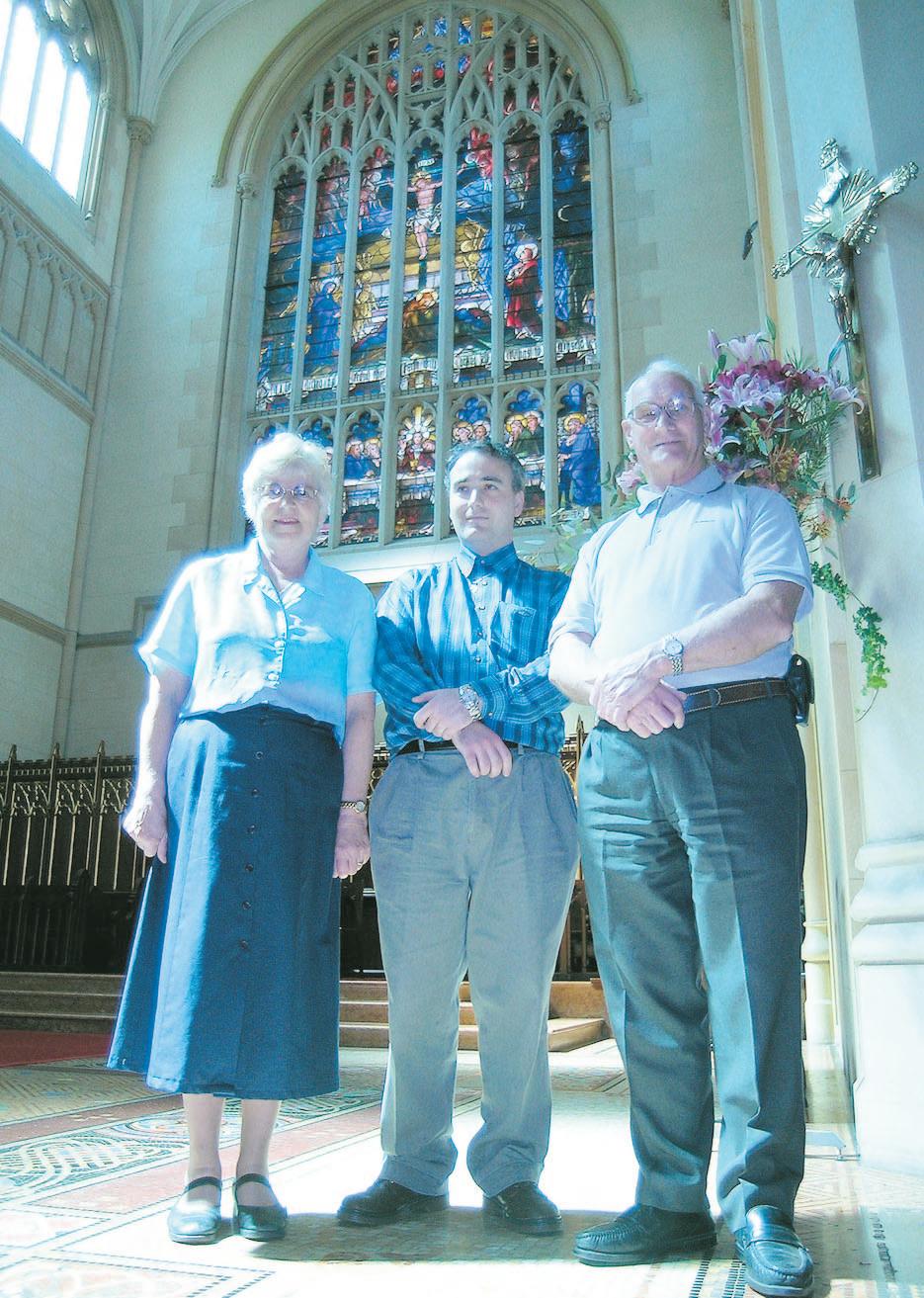
later rented properties. Mr Mahady took up the trade of carpentry to support his family.
Feeling lost when they first immigrated, they made several return journeys to Ireland. They also sought solace and, familiarity in the Church.
“No matter where we were, we always went to Mass on Sunday. We had our ups and downs but we always made time to do that,” Mrs Mahady said.
Mr Mahady added “We nearly always said the family rosary as well. It was one of the mainstays in our life. We always said a novena when we made a move.”
The Mahadies returned to Ireland in 1979, where they stayed for three years. Before their visa expired, they returned to
Perth when Mr Mahady received a job offer.
Confirmation of their decision came when their children began to set down roots of their own.
“The children got married soon after we returned,” Mr Mahady said.
The Cathedral’s then Dean, Monsignor Patrick O’Reilly, asked Mr Mahady, and his son Raymond to be acolytes. This was followed by the appointment as sacristans.
Mr Mahady estimates he’s been retired for at least 14 years now. Both he and his wife volunteer their services to St Mary’s Cathedral.
“Traditionally. lay people had not been sacristans. It was always the Mercy Sisters before us,” said Mr Mahady.
“The Mercy Sisters did a tremendous job before we came along,” said Mrs Mahady.
Monsignor Thomas McDonald said the Mercy Sisters had been sacristans at the Cathedral for almost 150 years.
Married for 46 years this year, the Mahadies clearly work as a team. They almost relay their answers to the questions, displaying a united view shaped by faith and shared life experiences.
“It’s a great privilege and honour to serve God. St Mary’s Cathedral is our Holy Land, it’s our home,” said Mr Mahady.
The Mahadies were keen to relate the different novenas and devotions that are held at the Cathedral.
At St Mary’s Cathedral there are two Masses during the week, one at 7am and one at 12.10pm, preceded by the Angelus and followed by the recitation of the Rosary. Confessions are available daily. On every Tuesday at the Cathedral there is a Novena to the Infant Jesus of Prague from 11 to 12pm, and after mass there is a St Anthony Novena at 1pm.
There is a Holy Hour from 11am to 12pm every Wednesday for patrons of the Cross Roads Community for people with addictions, and their families. There’s a Novena said to St Joseph every Wednesday from 1pm to 1.30pm. Every Wednesday evening there’s the Miraculous Medal Novena from 7.30pm to 8pm. Every Friday there’s Marian Movement devotion for the intentions of the clergy, and those considering vocations from 11am to 12pm.
Tom and Angela said they measure their service more by what they have received, than what they have given.
“Faith gives you hope,” Mr Mahady said. His wife adds “We have to pray for every given situation because behind every closed door there are problems.”
The couple describe themselves as “blessed” with their big family and extended family.
Mrs Mahady stopped herself a couple of times mid conversation about her faith, and added with a smile “…but you can’t say too much.”
Cathedral Dean Monsignor Thomas McDonald said “Tom, Angela and Seamus are eminently suited to their positions at the Cathedral because of their deep faith. They consider their positions a vocation.”
The Monsignor said the word sacristy literally means sacred place or sacred room, adding, “The maintaining of the sacristy is the one thing I never need to worry about because everything is there. The Mahadies do a magnificent job, are wonderful people and the Cathedral is blessed to have them. It’s one ofthe best appointments I ever made.”
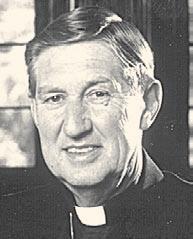
The Record 16 18 September 2003 T h e L a s t W o r d
All in the family
Angela, Seamus and Tom Mahady in St Mary’s Cathedral.
Family Subscription $55 for 1 year of The Record and Discovery Name Address Suburb Postcode Telephone I enclose cheque/money order for $ Please debit my ■ Bankcard ■ Mastercard ■ Visa Card No ■■■■ ■■■■ ■■■■ ■■■■ Expiry Date: / Signature: Send to: The Record, PO Box 75, Leederville WA 6902 AfromMessageArchbishop Hickey The Record is our own Catholic weekly newspaper.It tells us what’s happening in the Church locally and internationally. The television and the daily newspaper don’t give much space to the Church and when they do, it’s often bad news. Find out what is really going on. There is always something in The Record to interest and inspire every member of the family. Buy it every week.
Photo:Peter Rosengren






































































